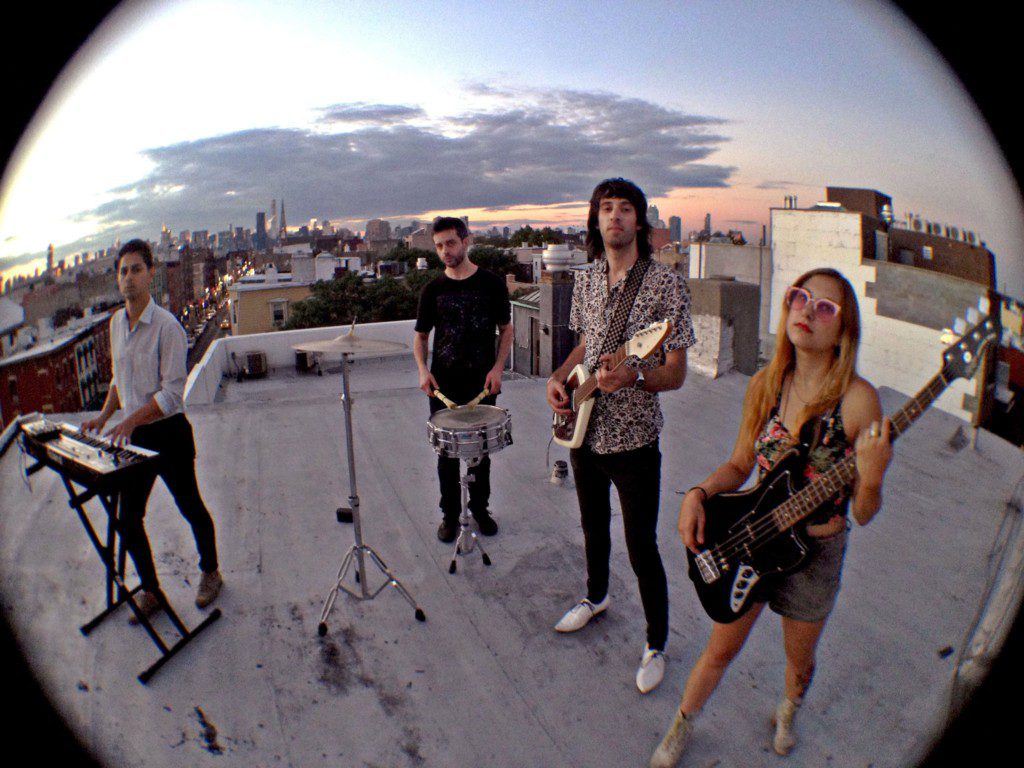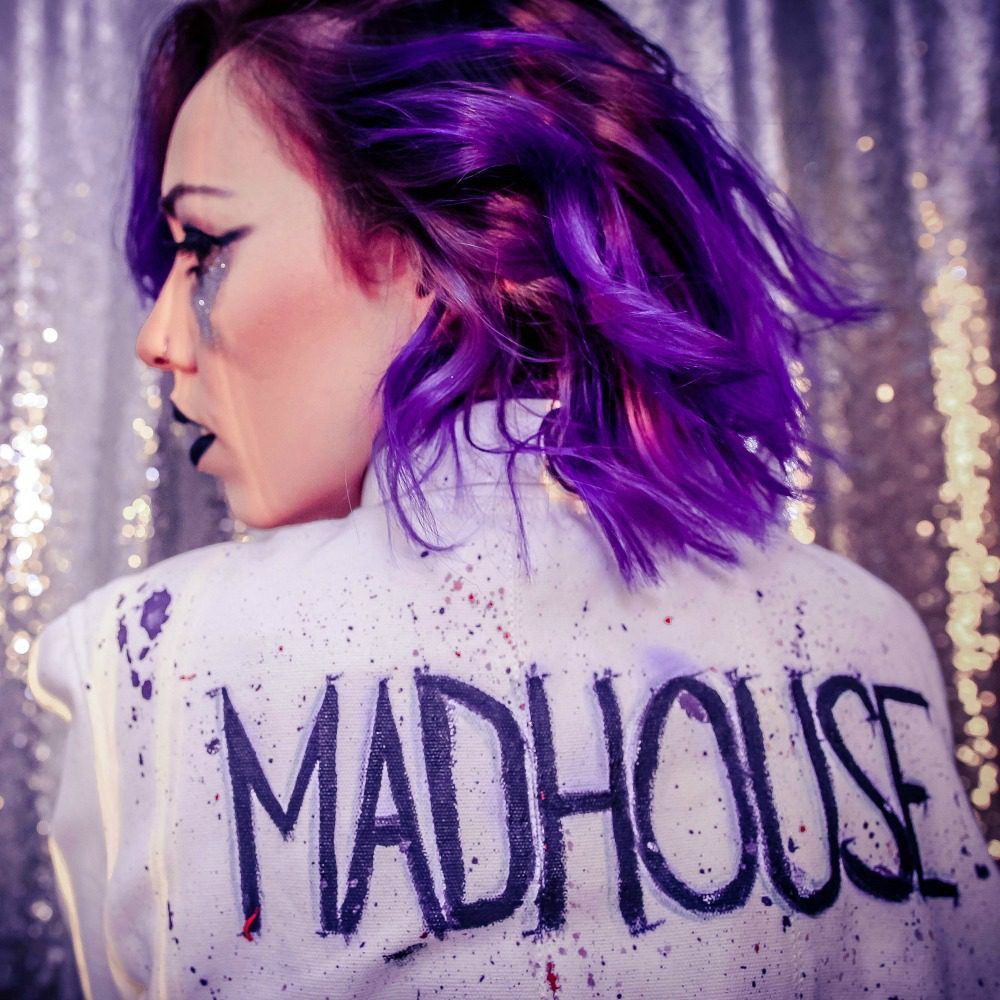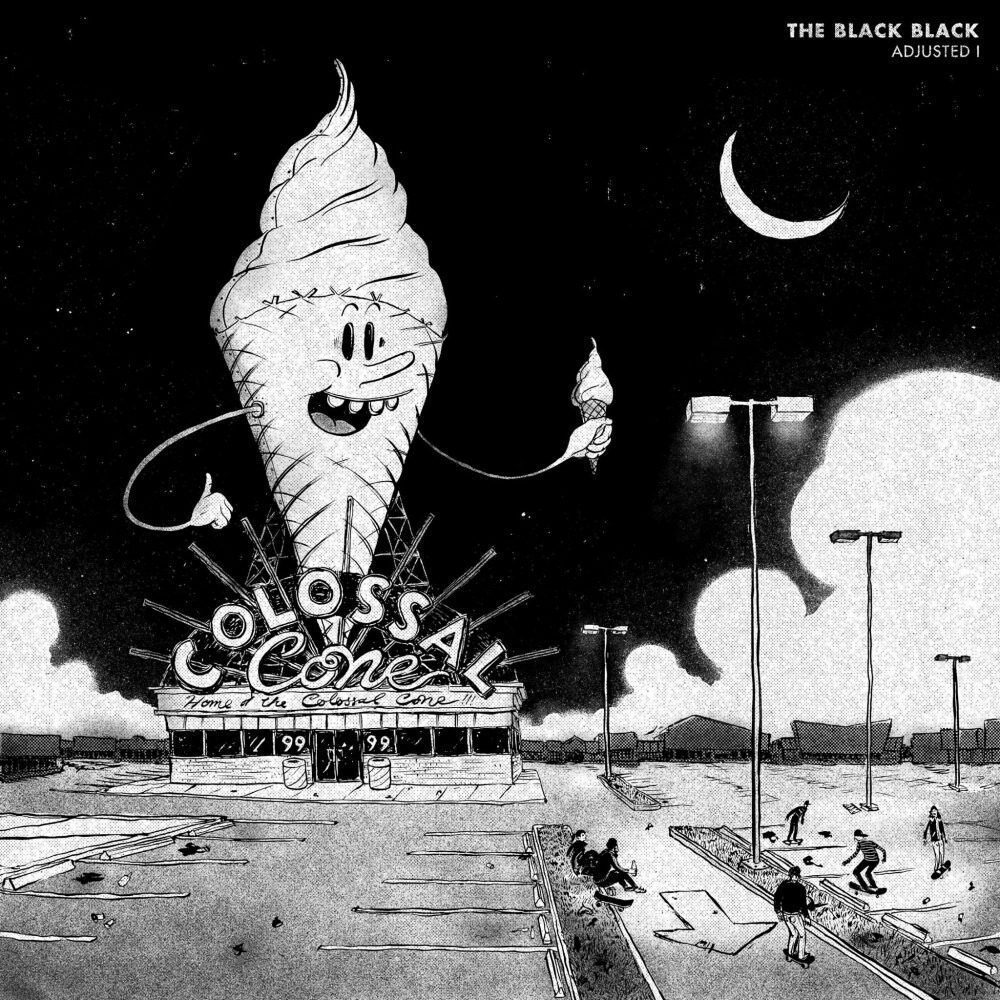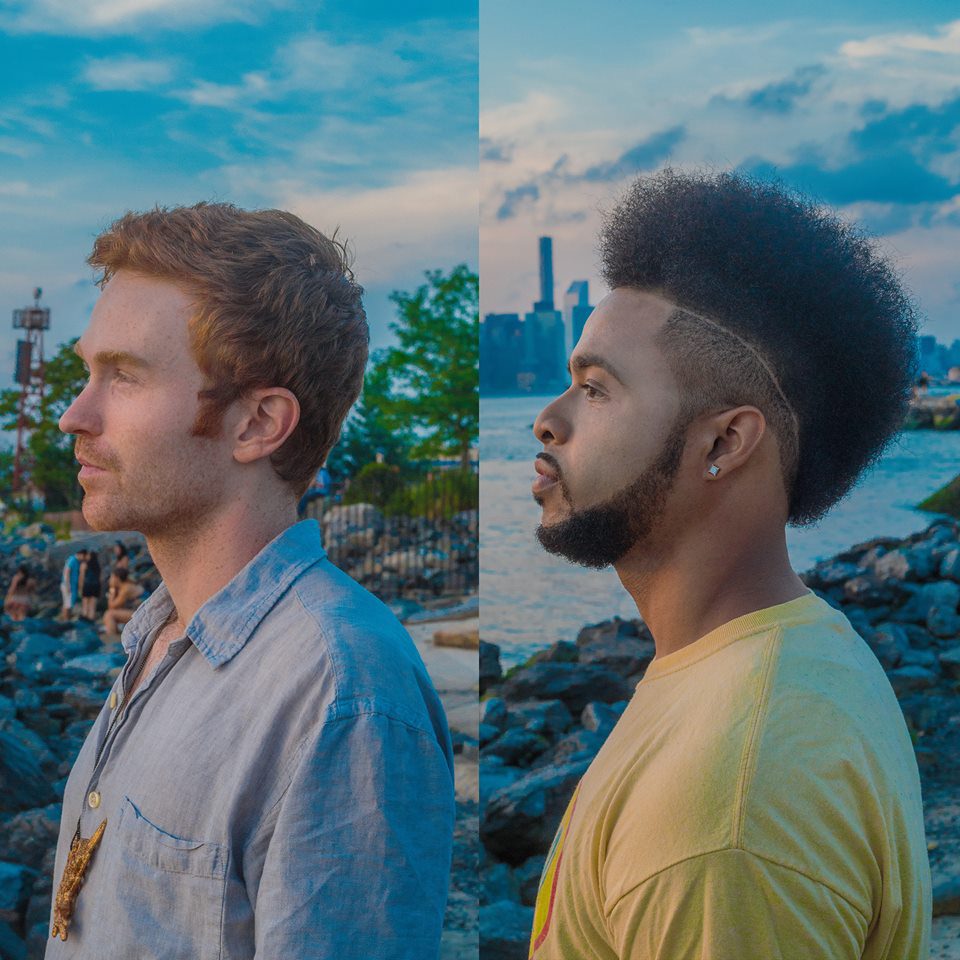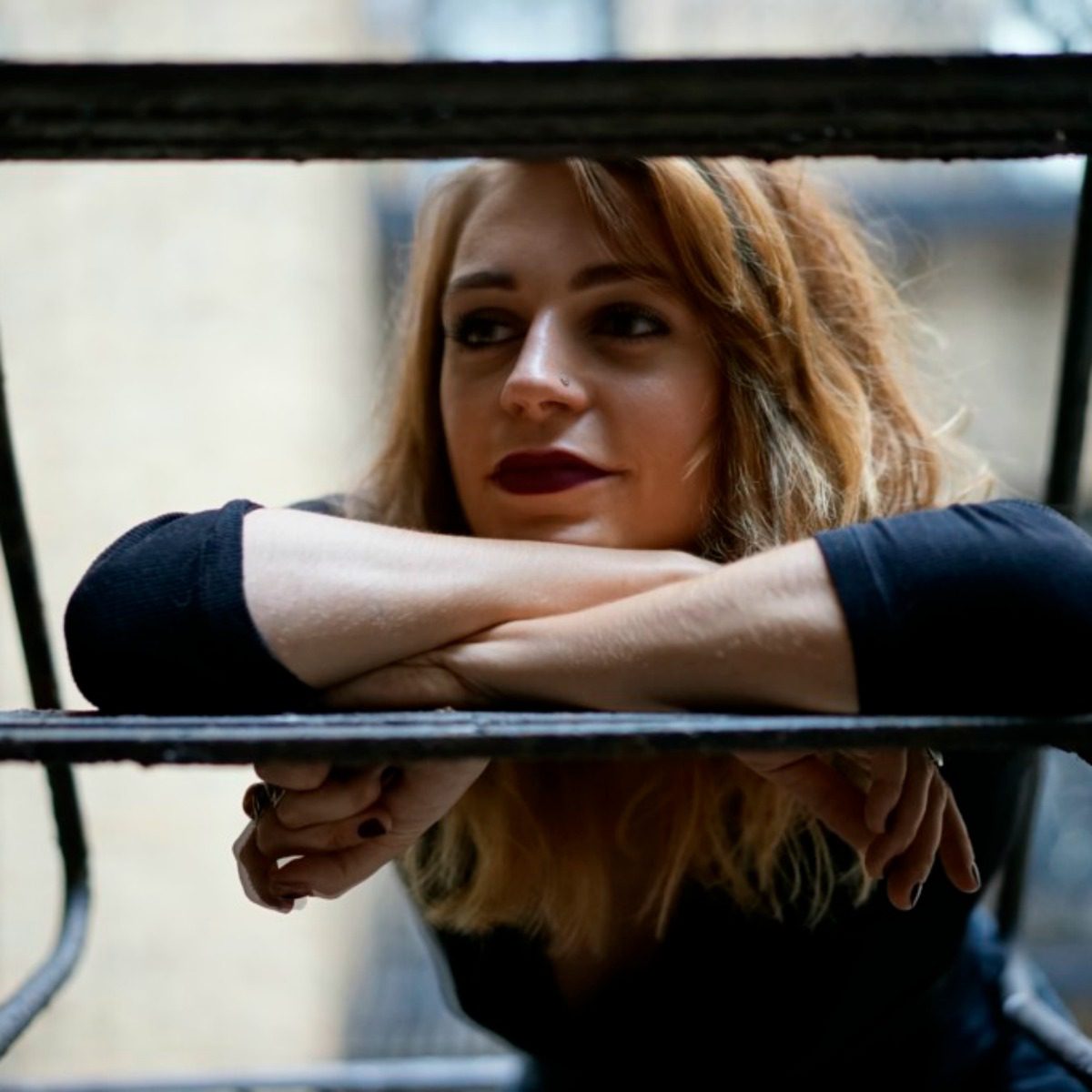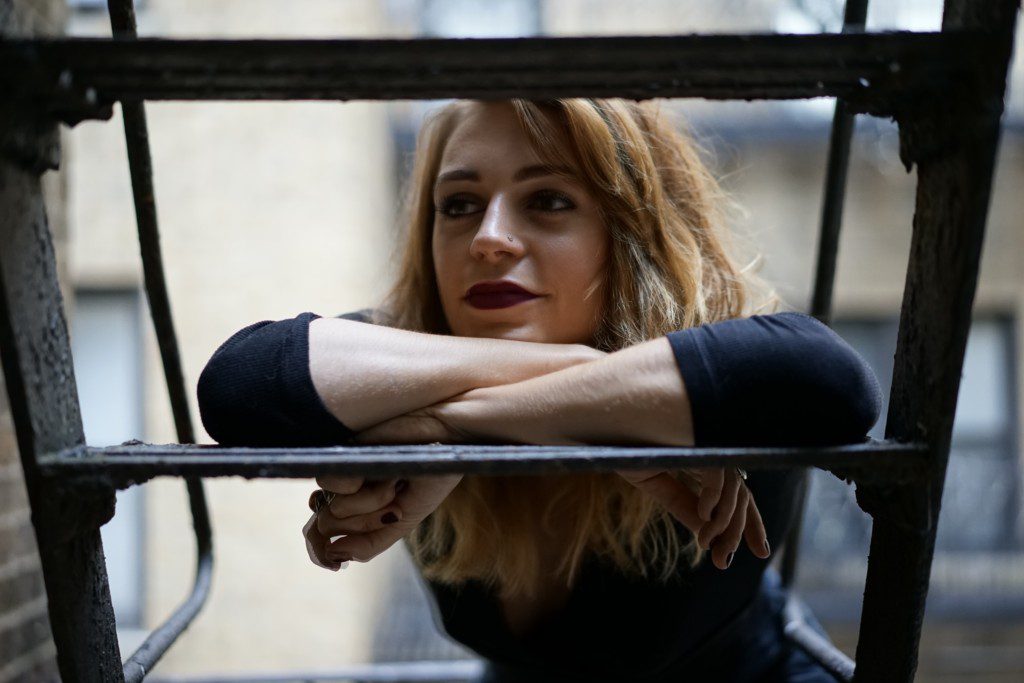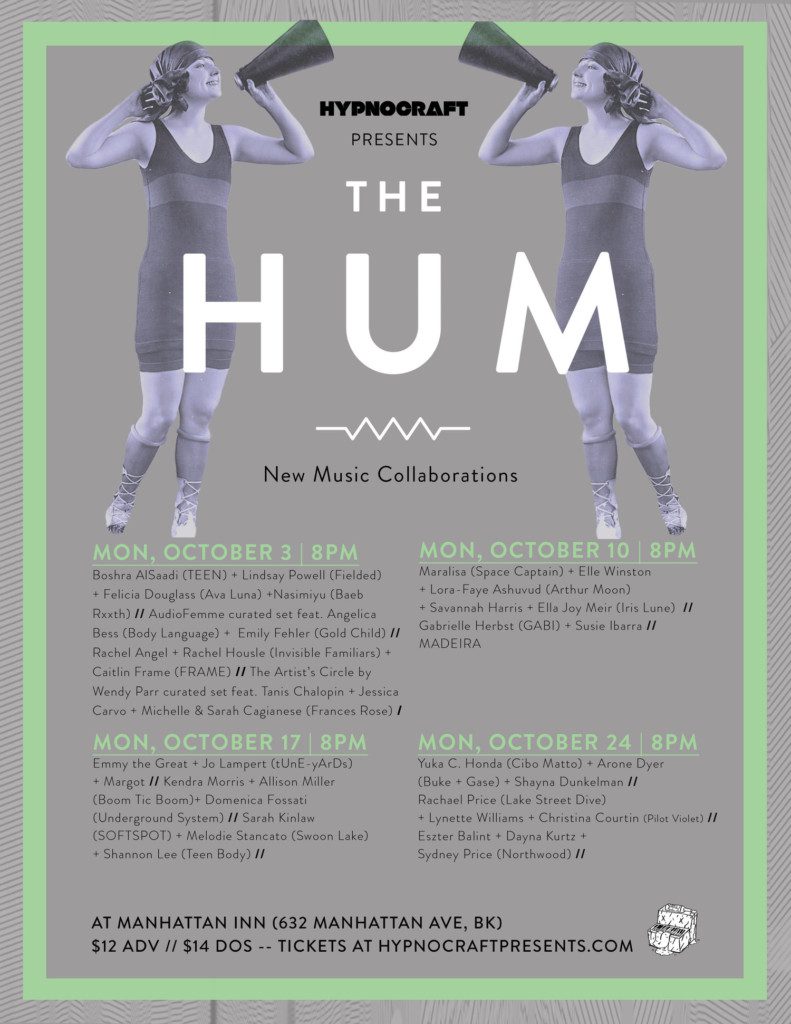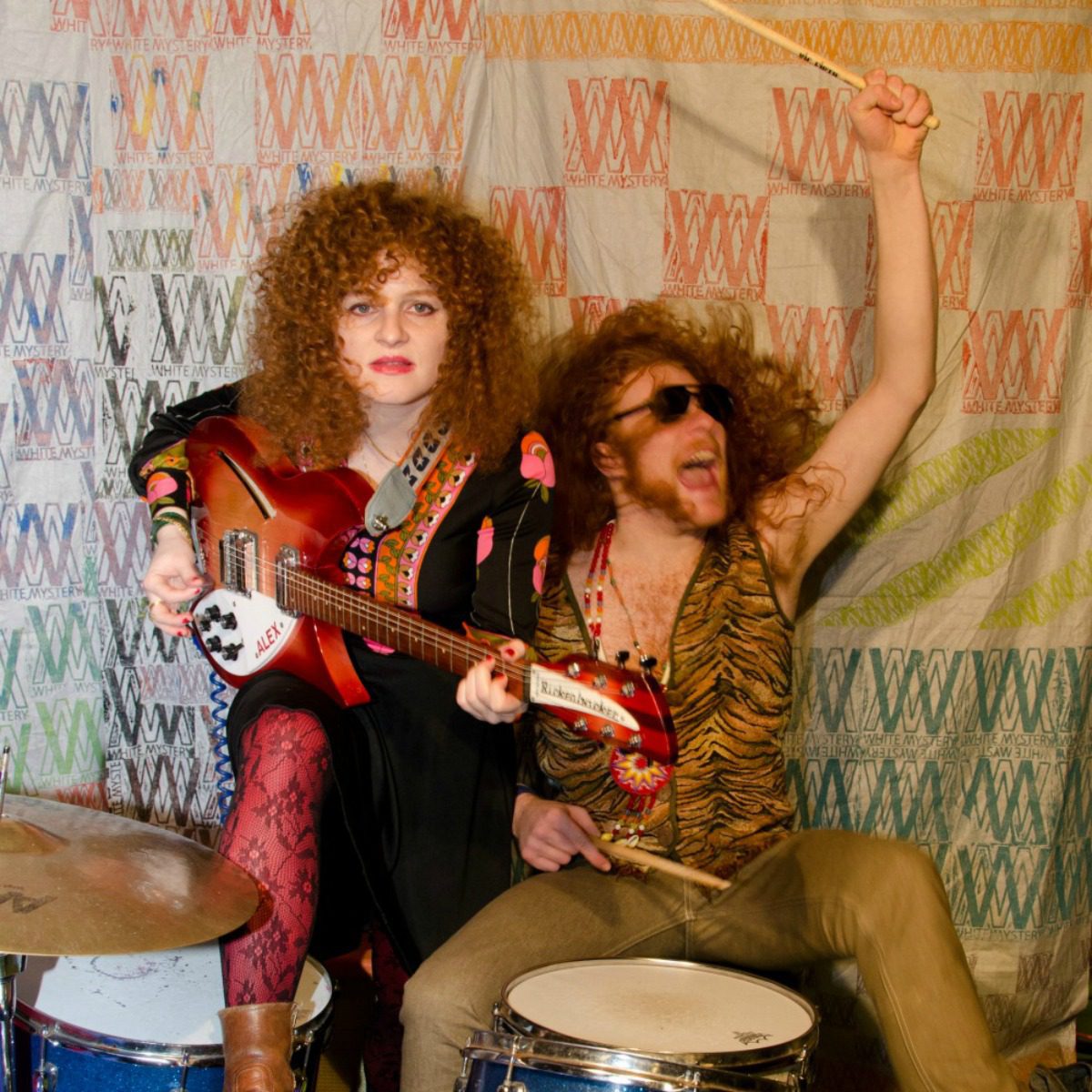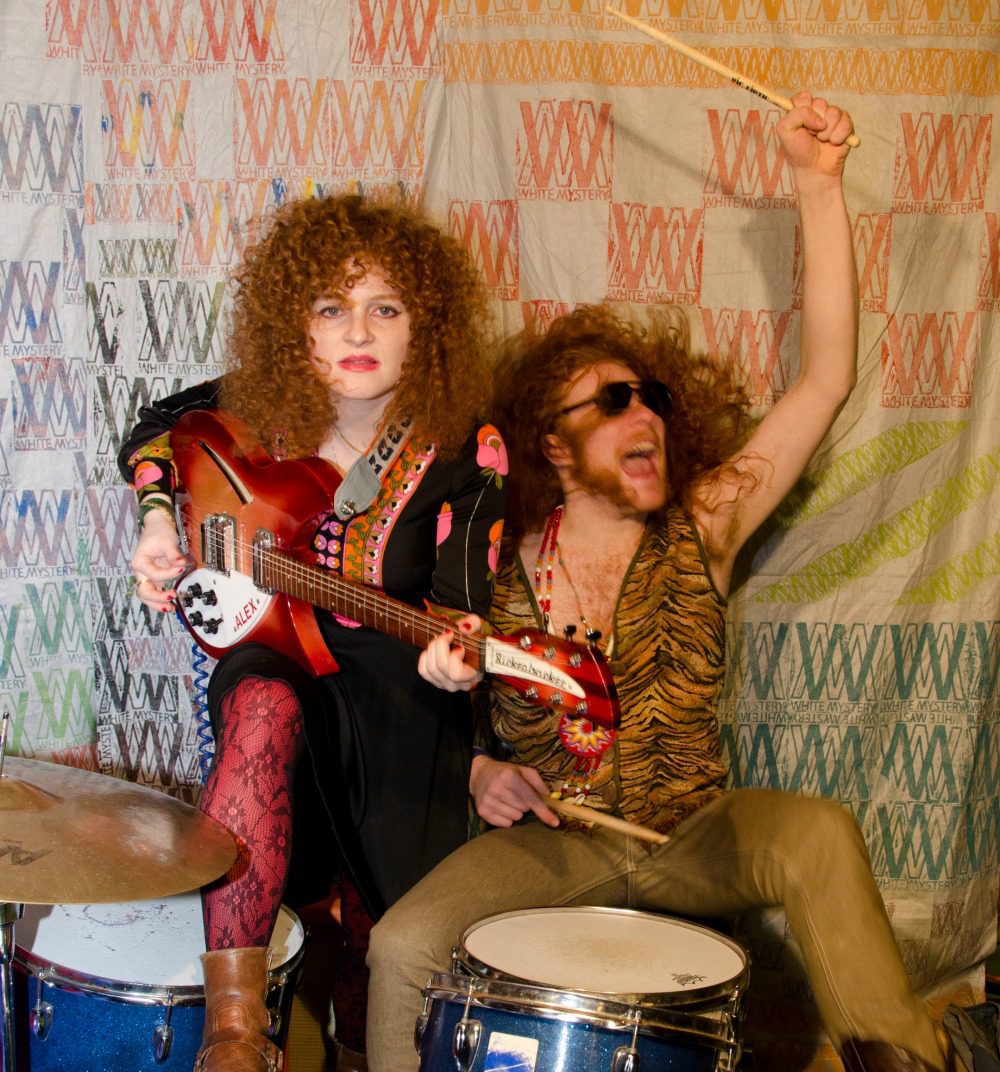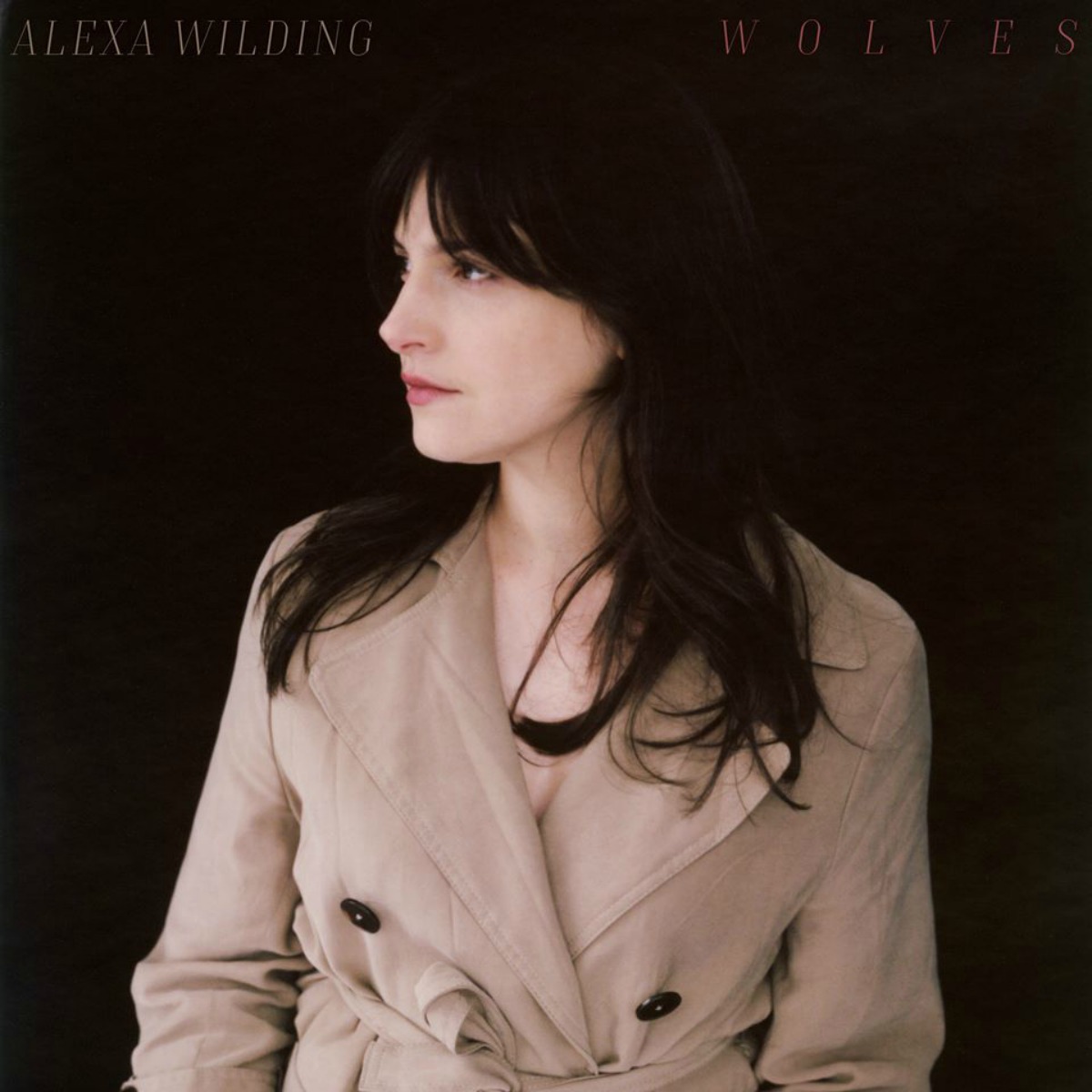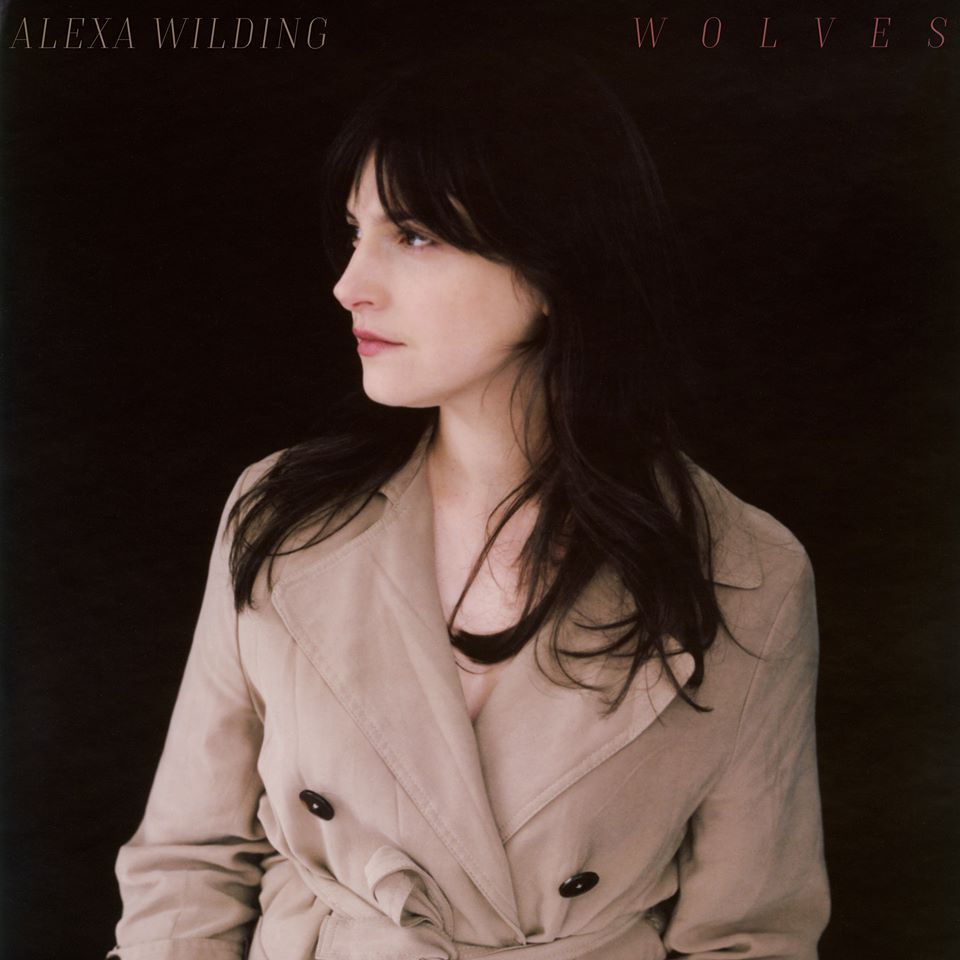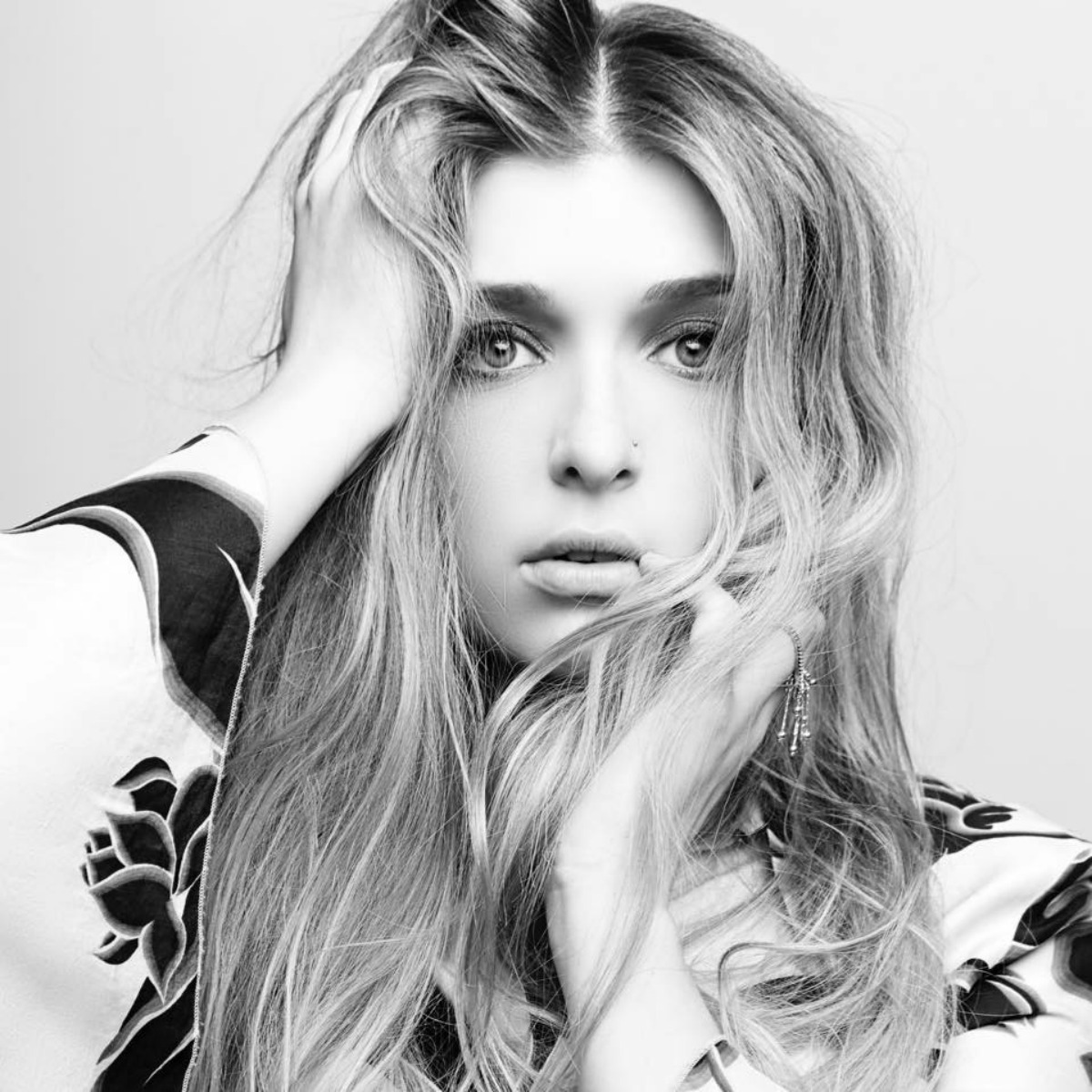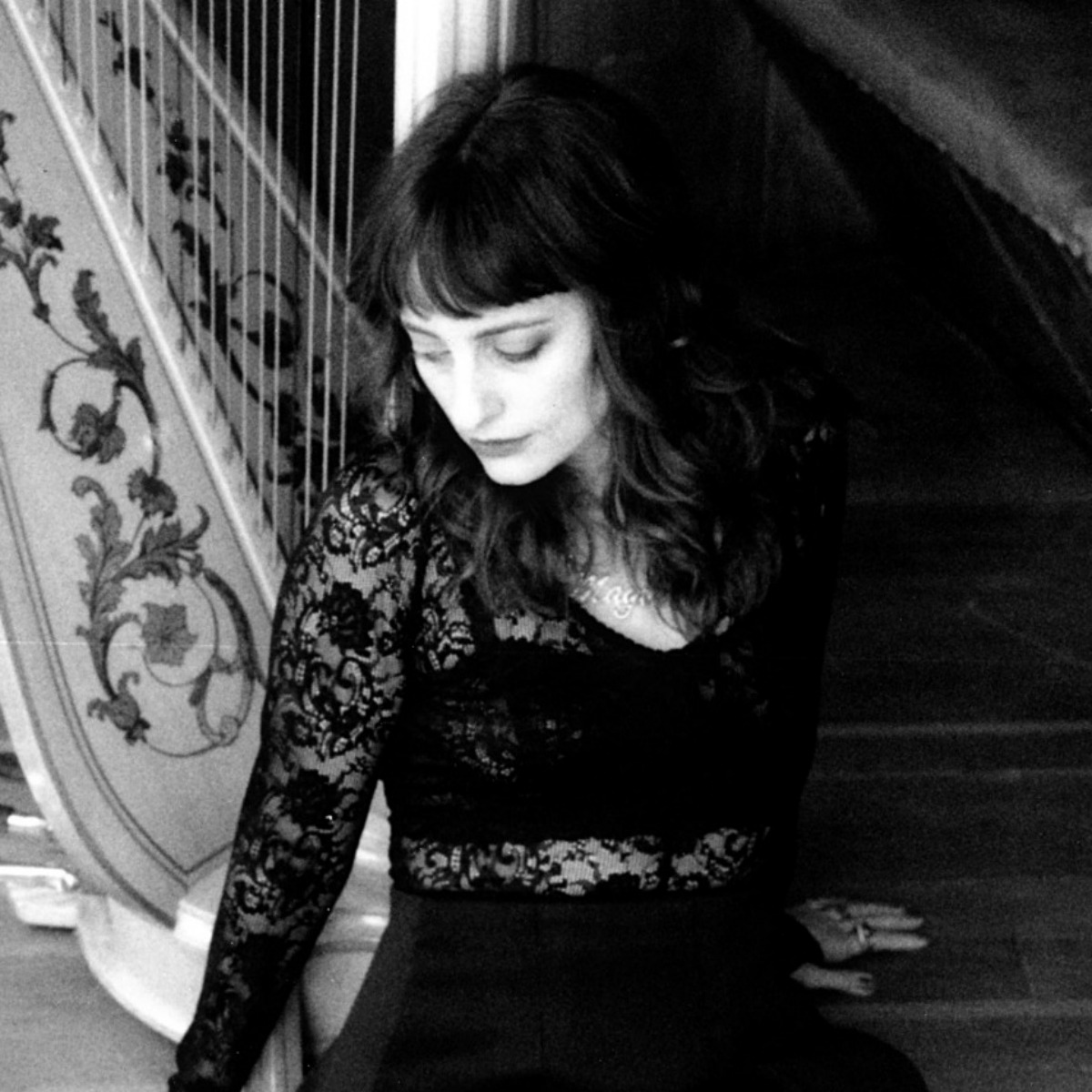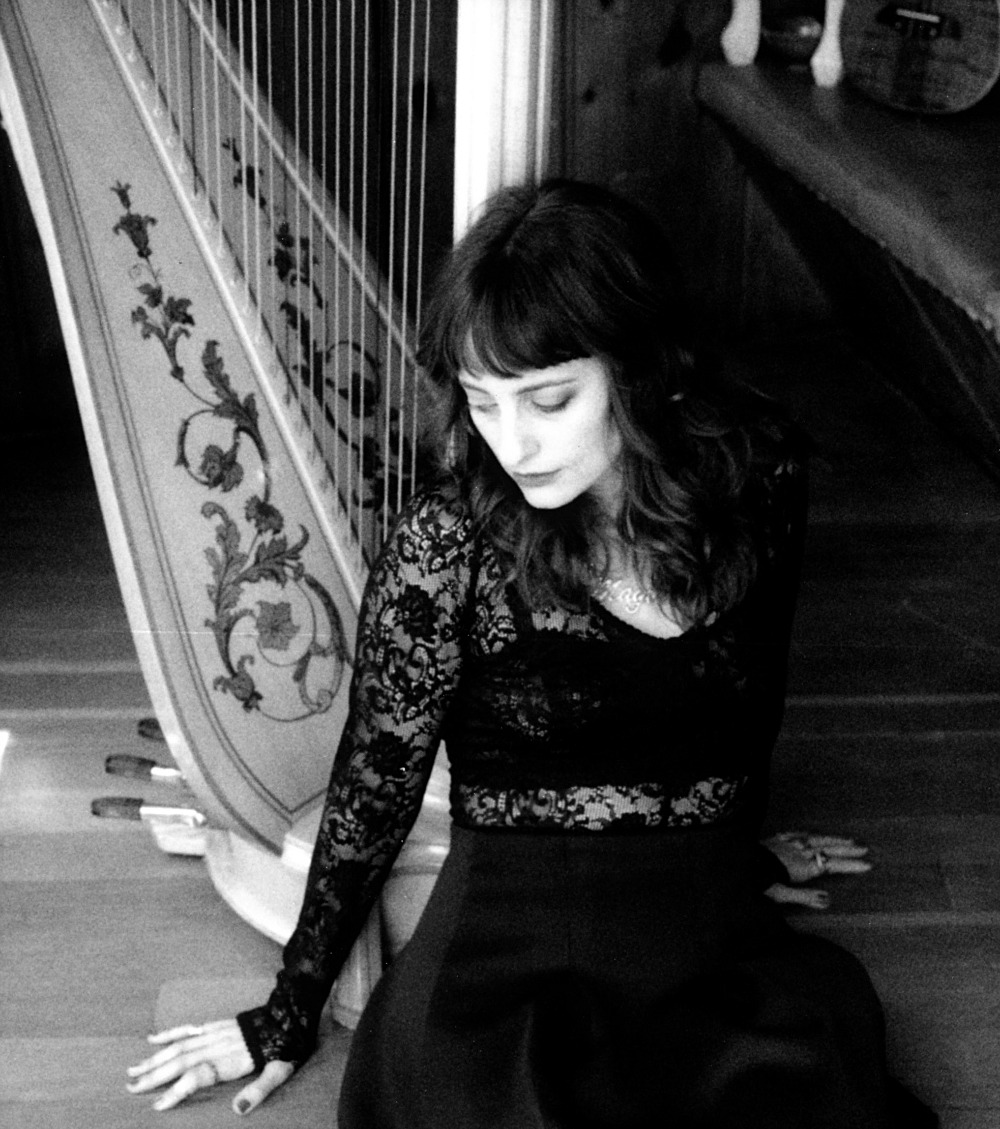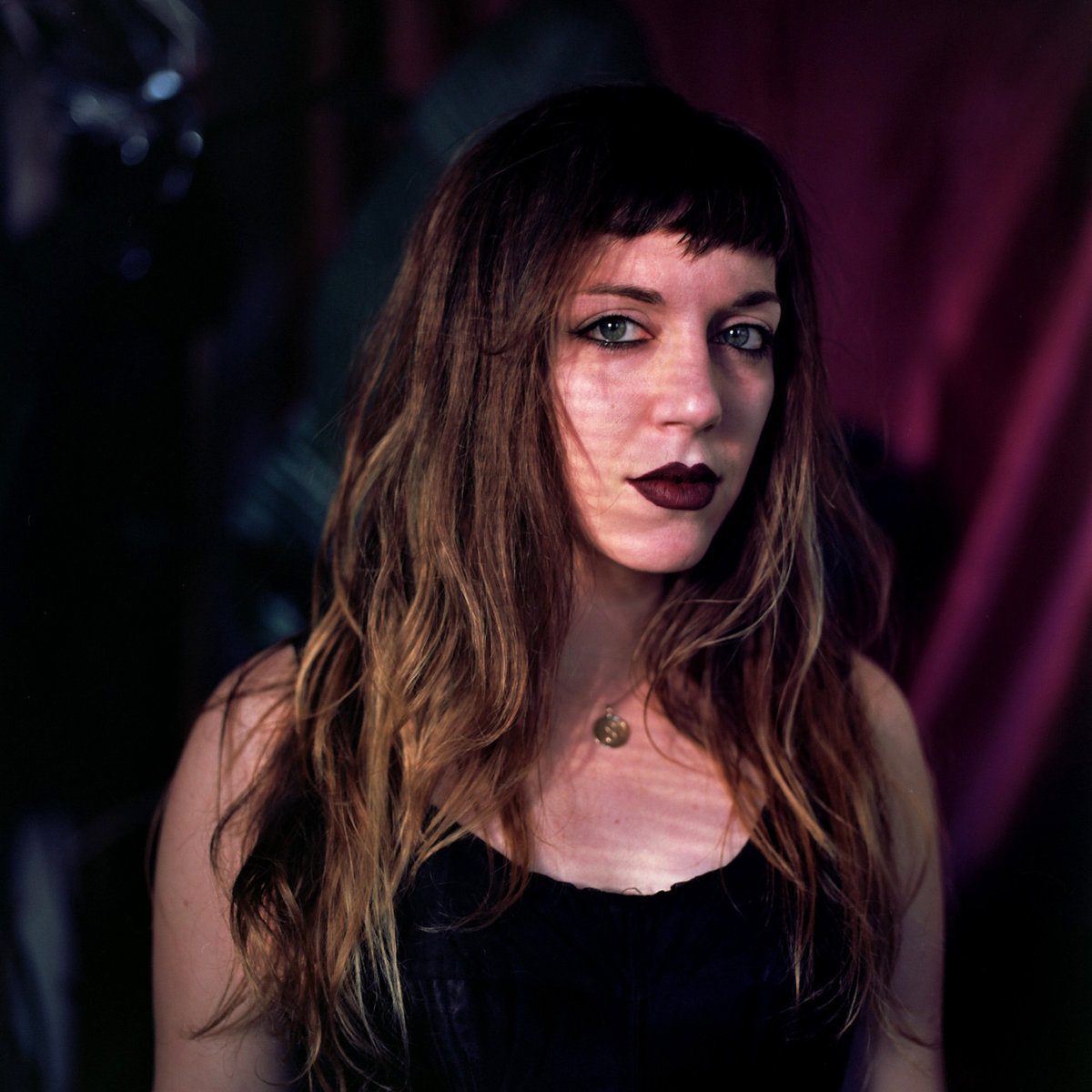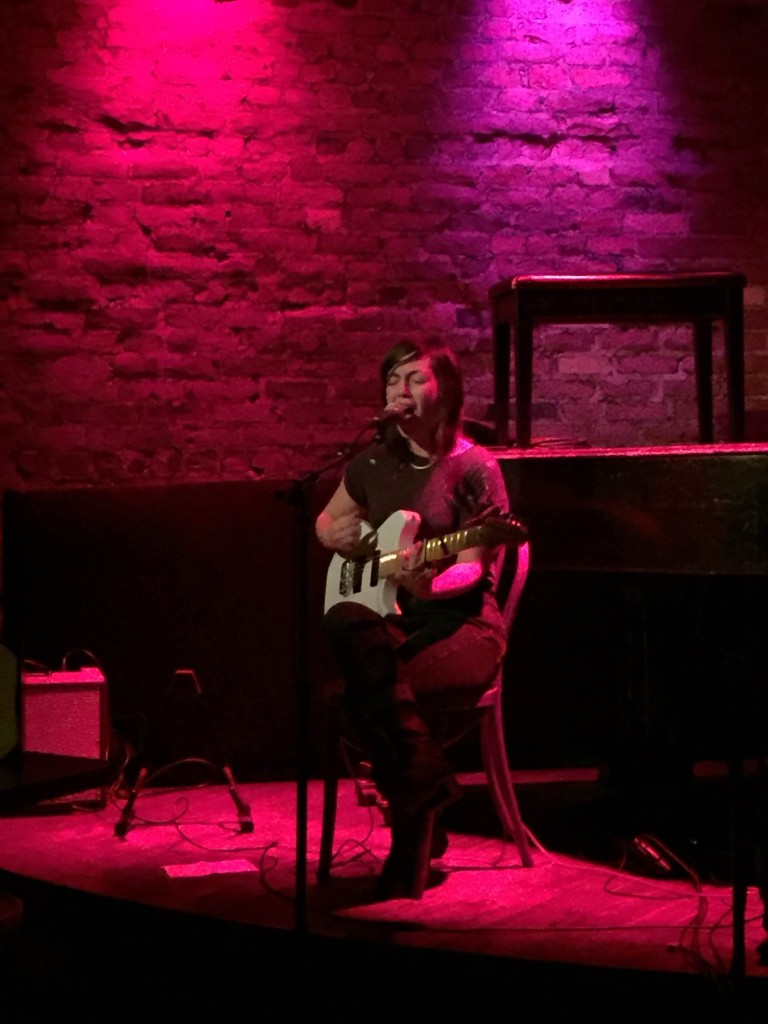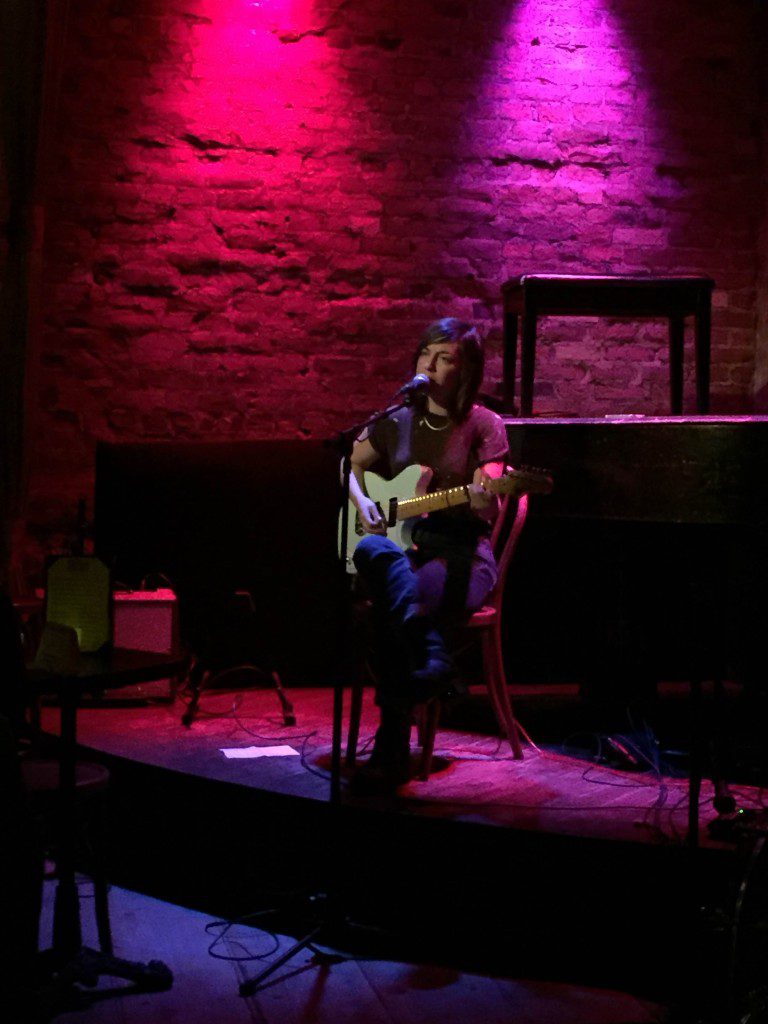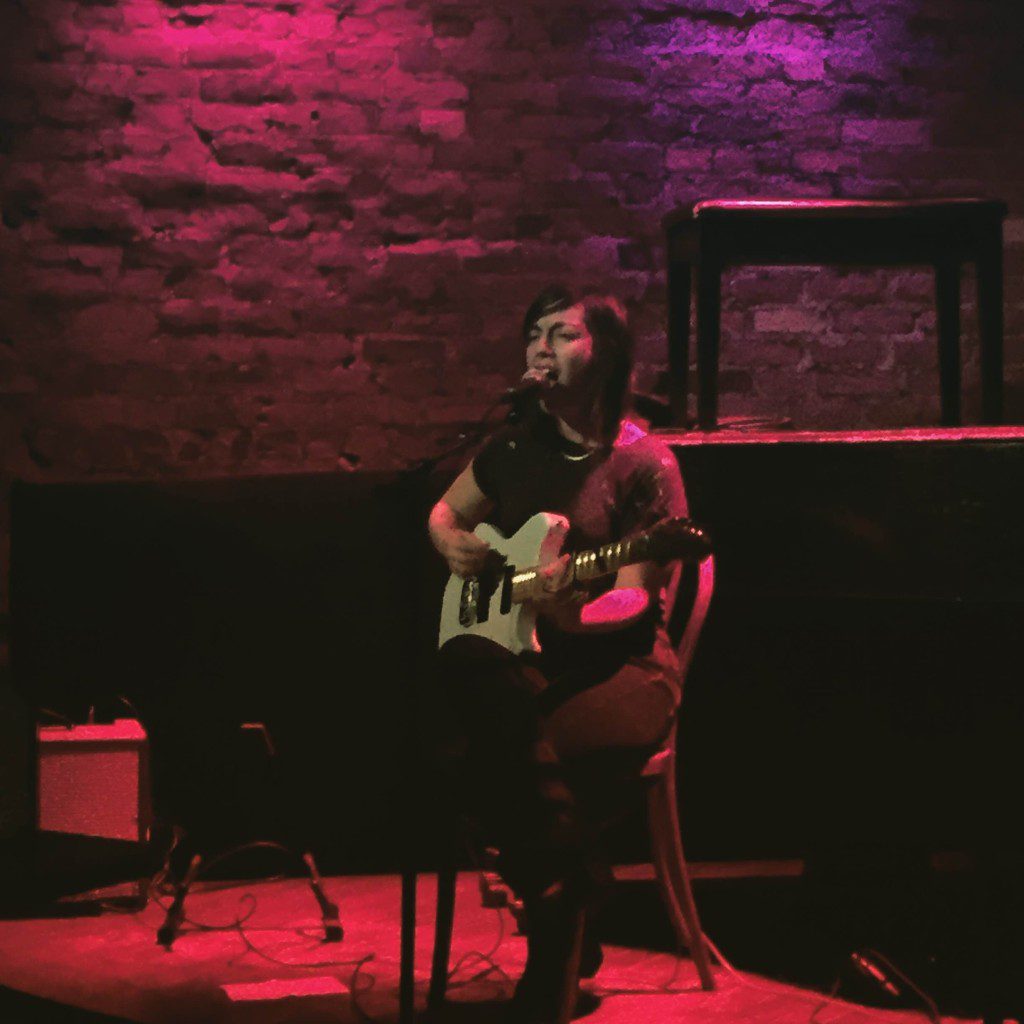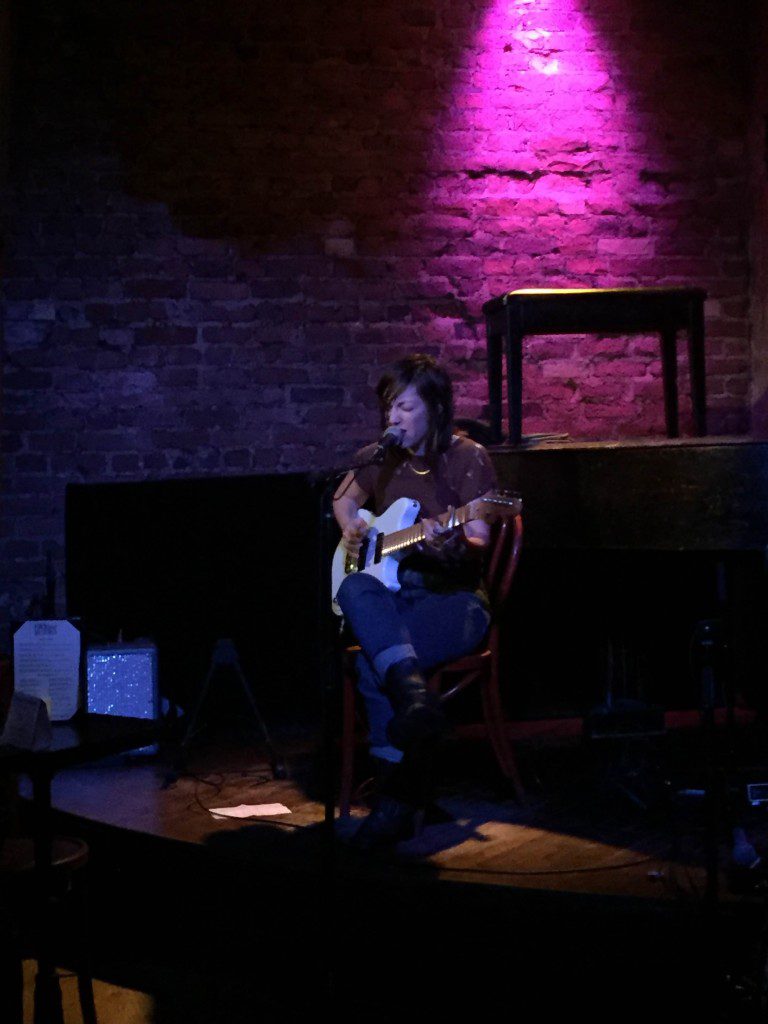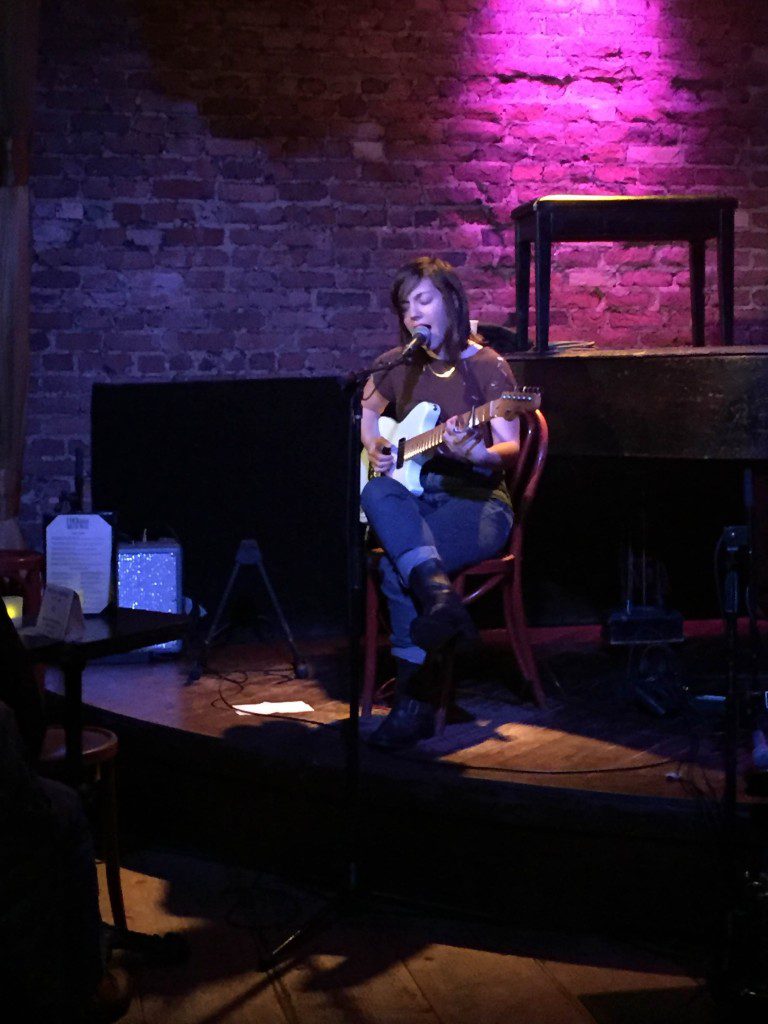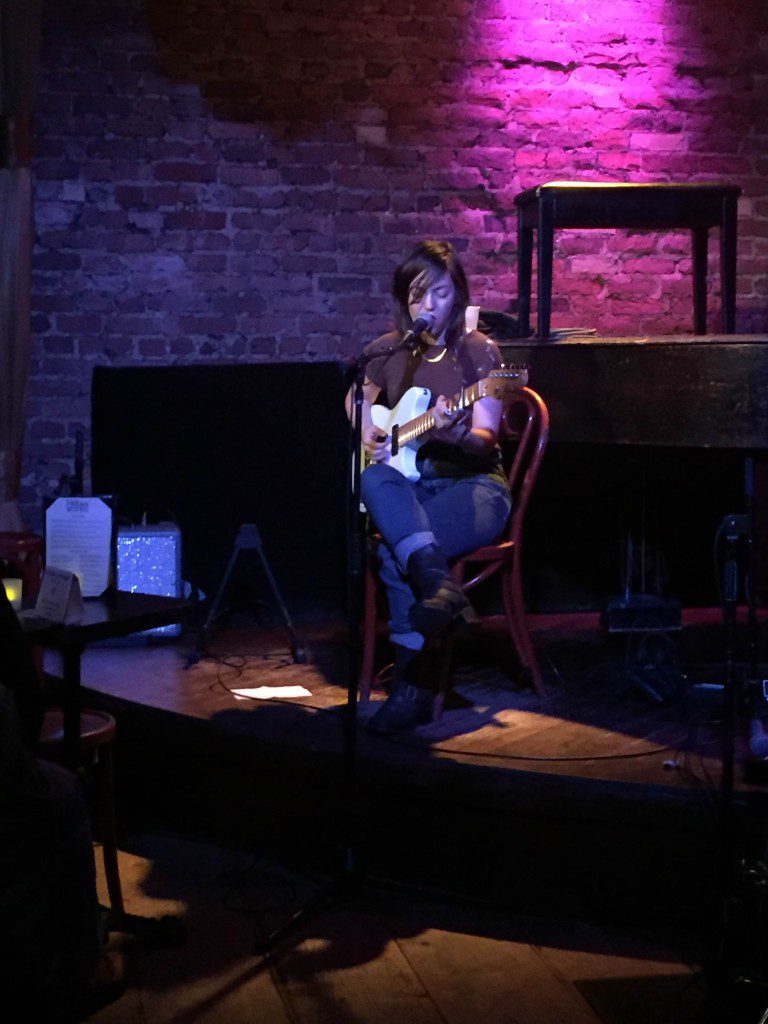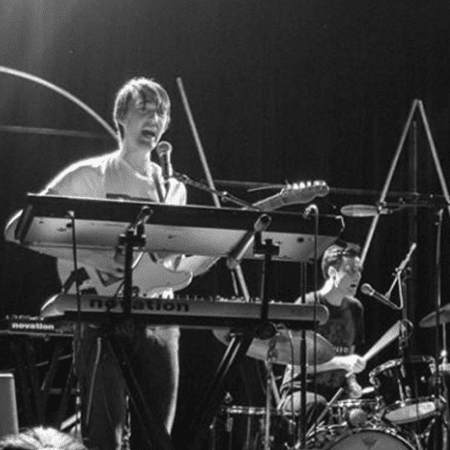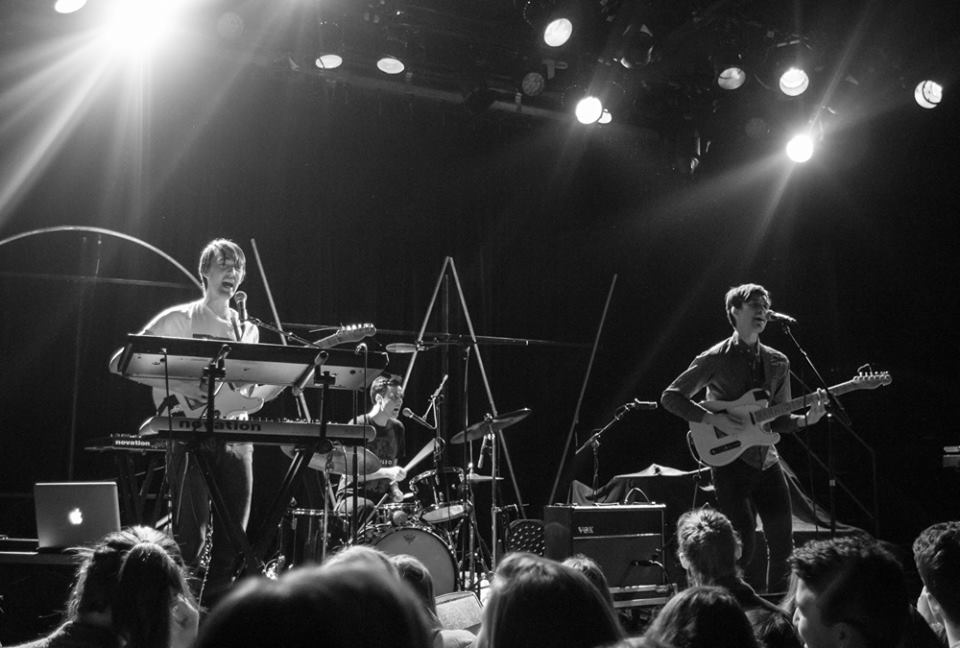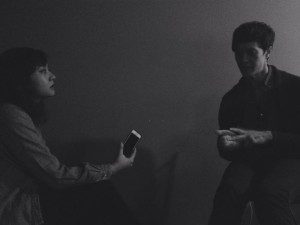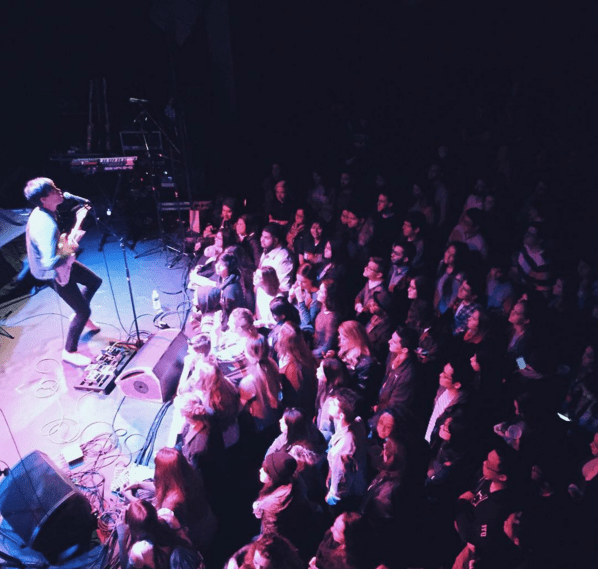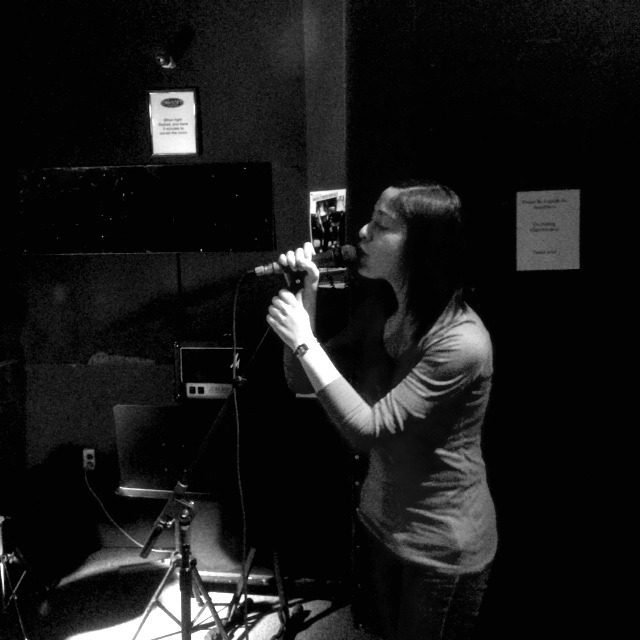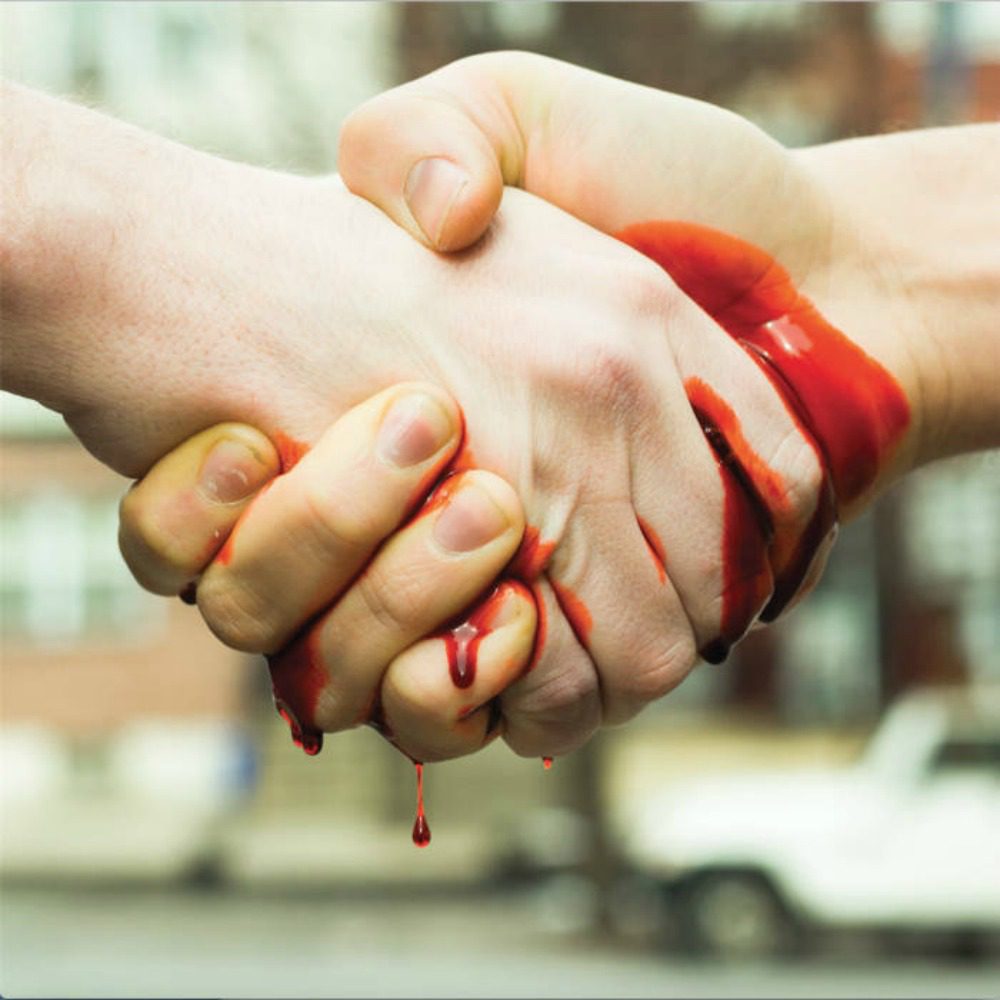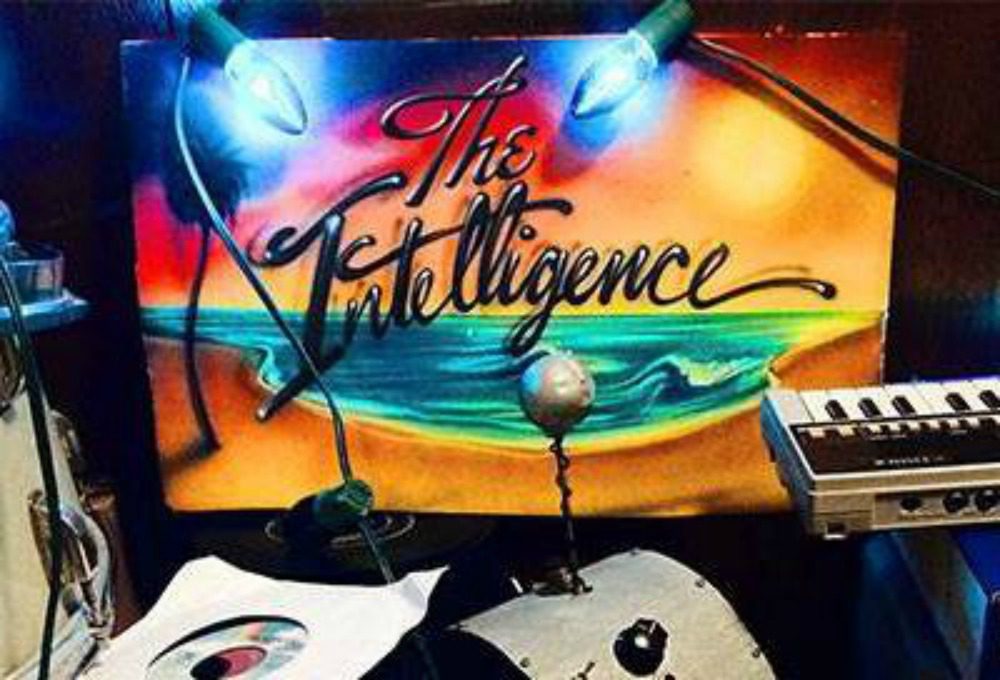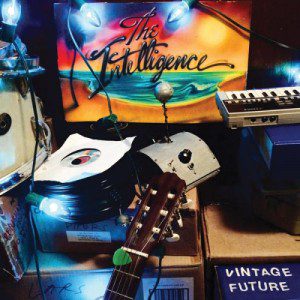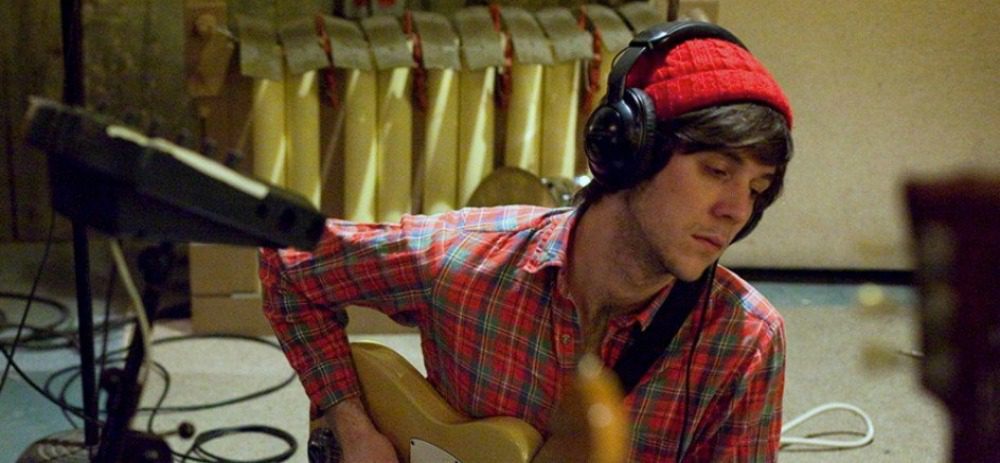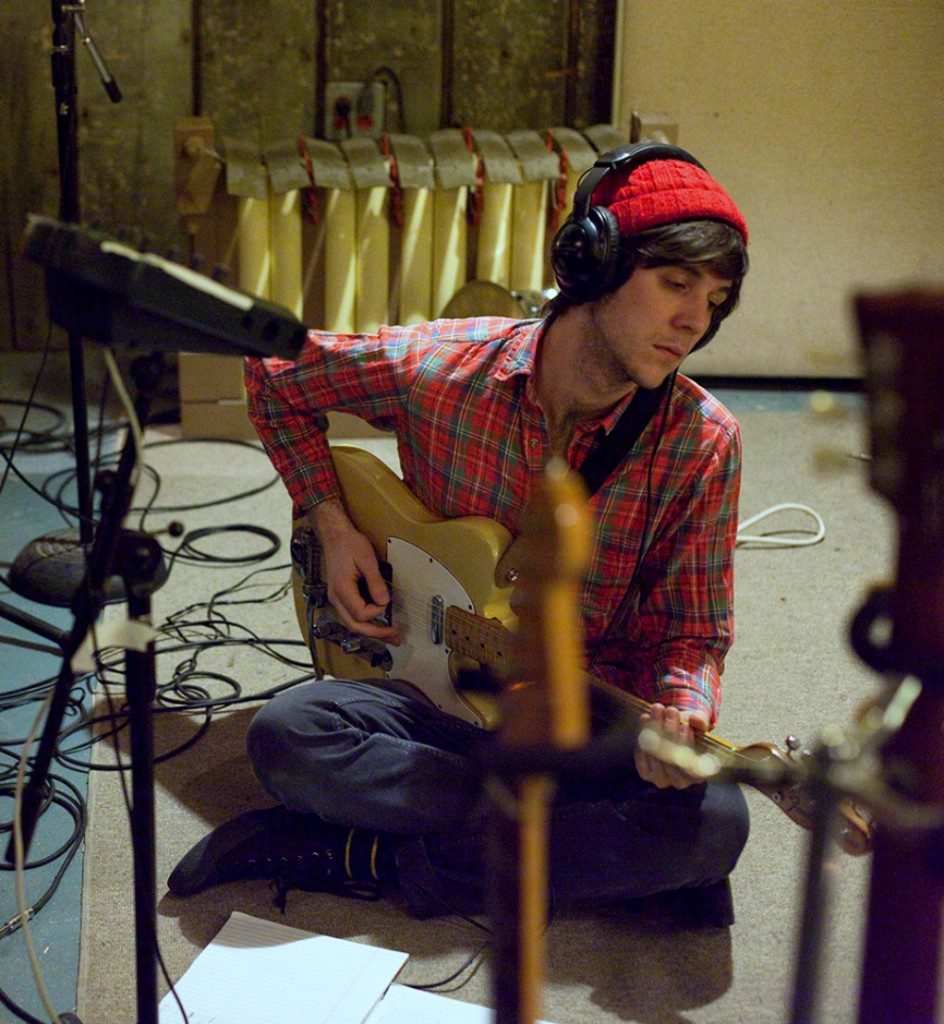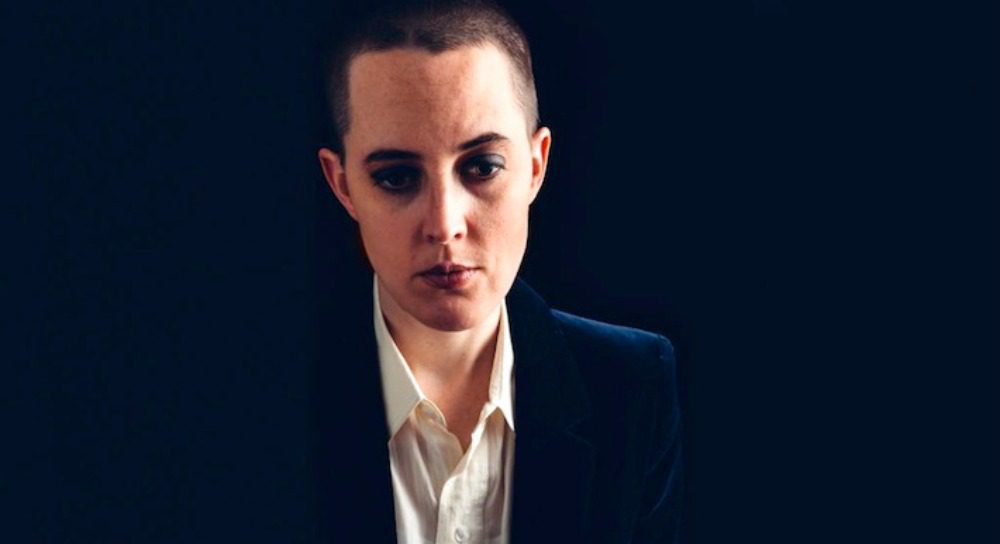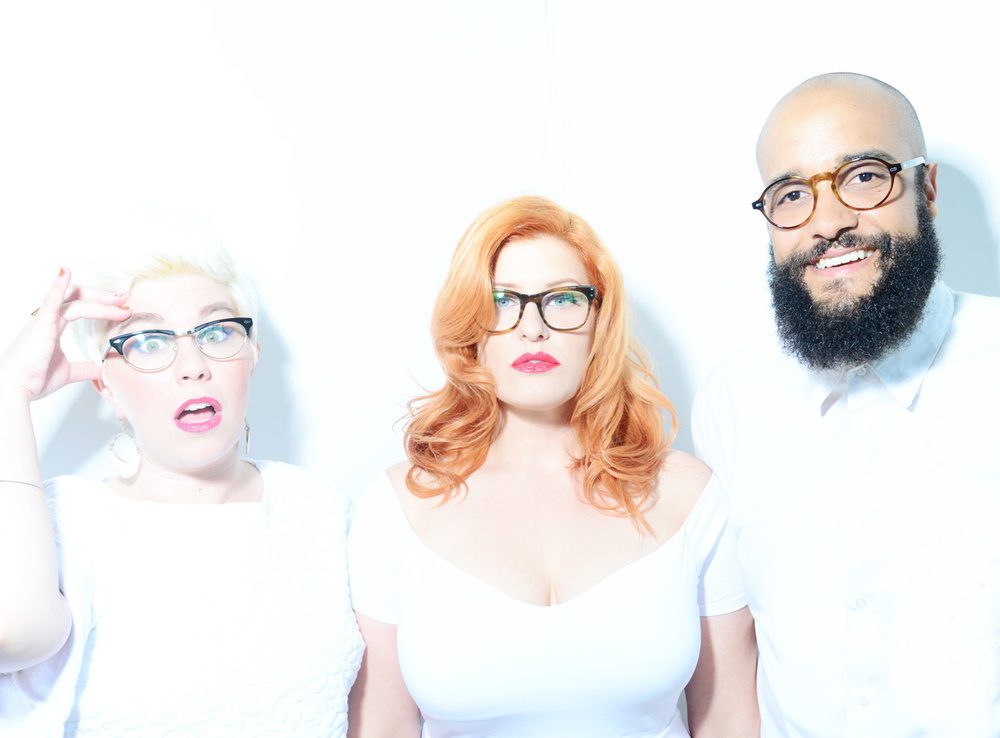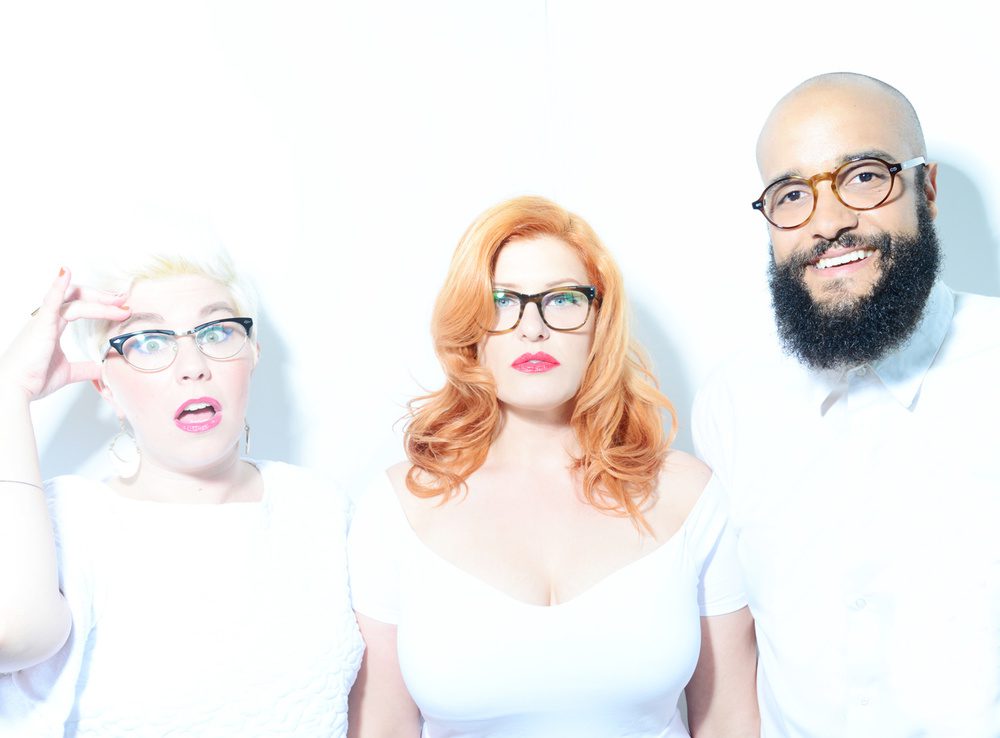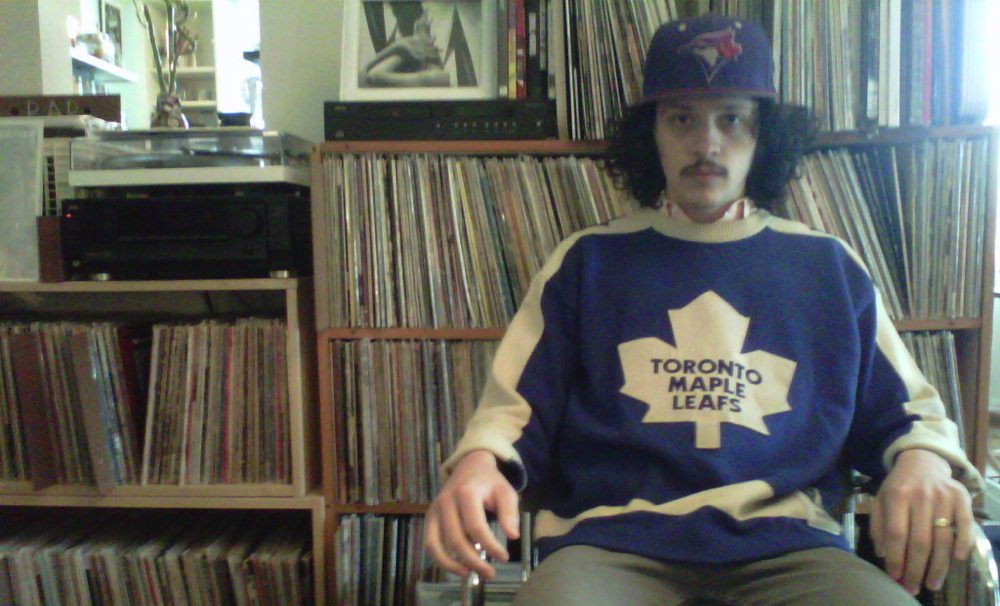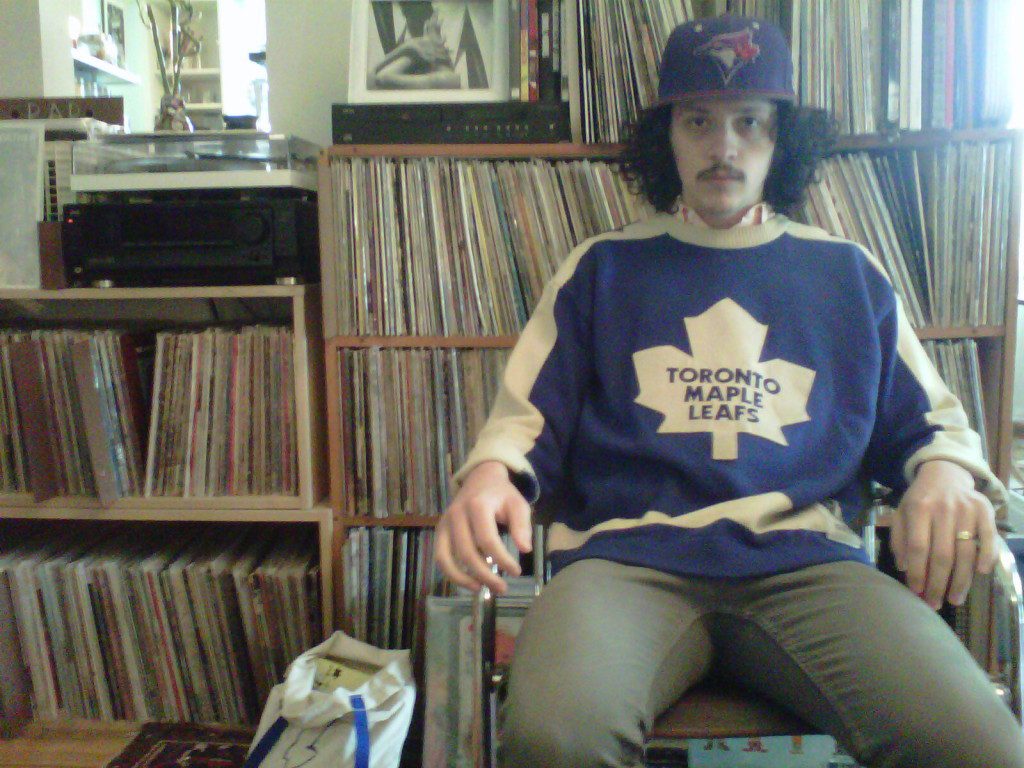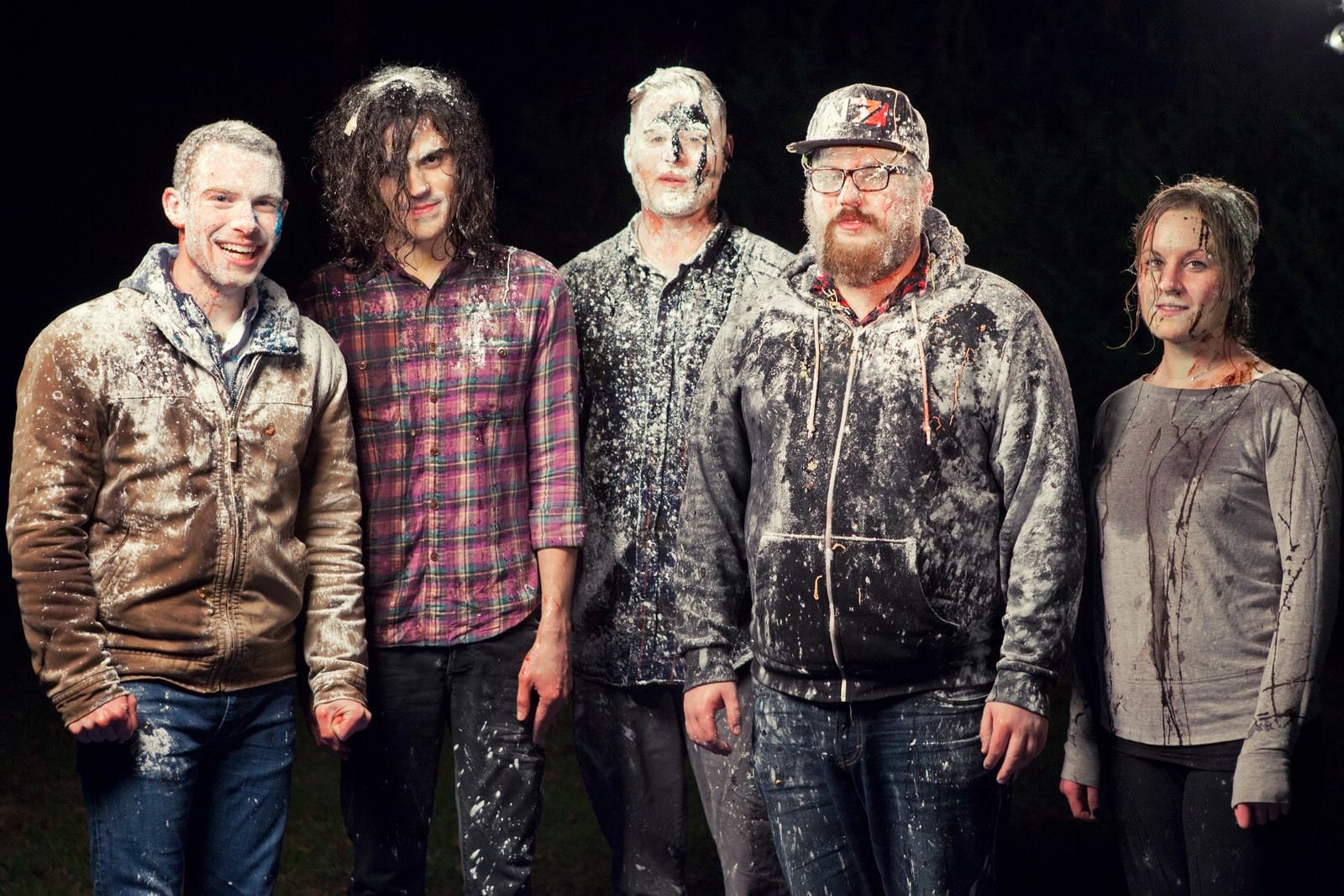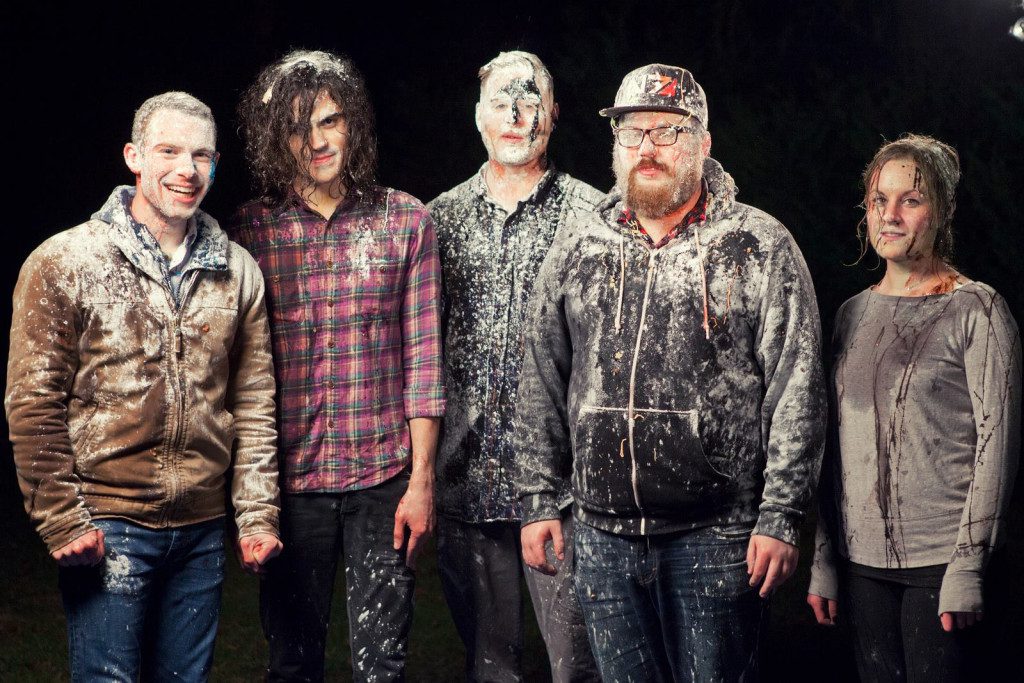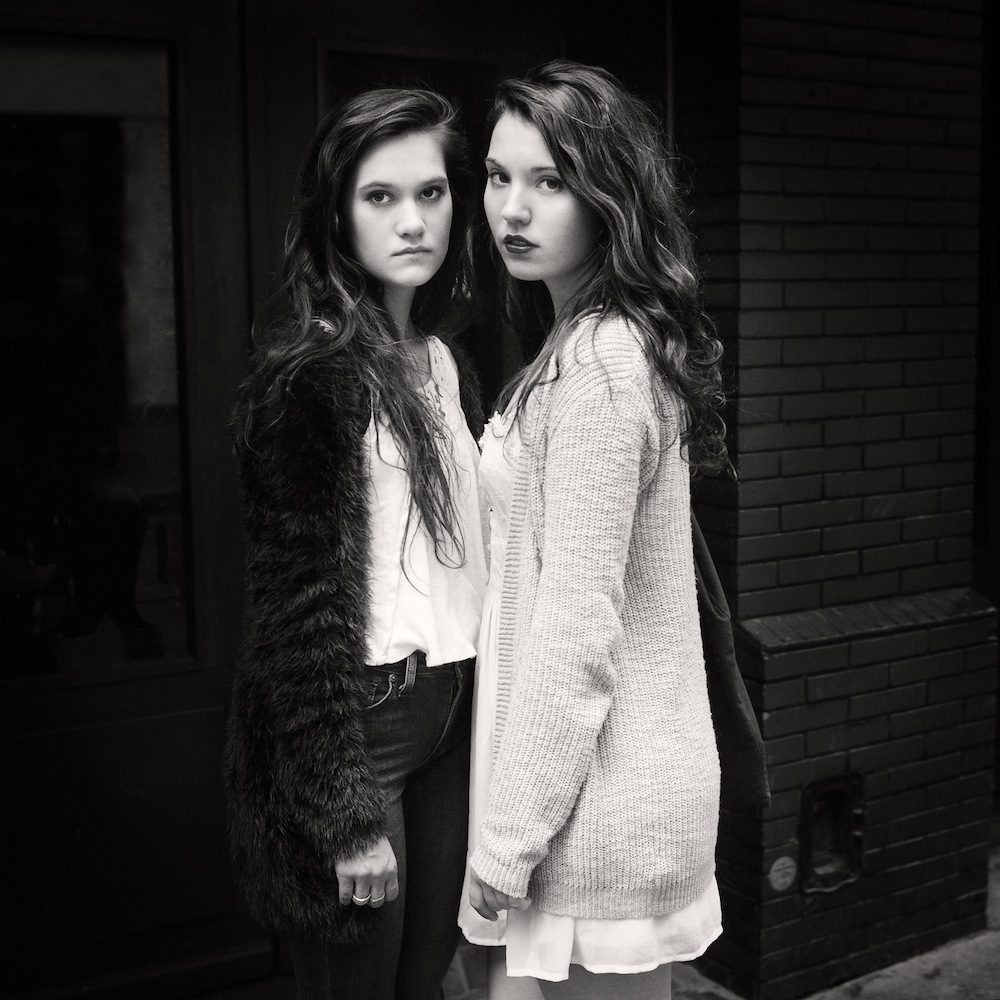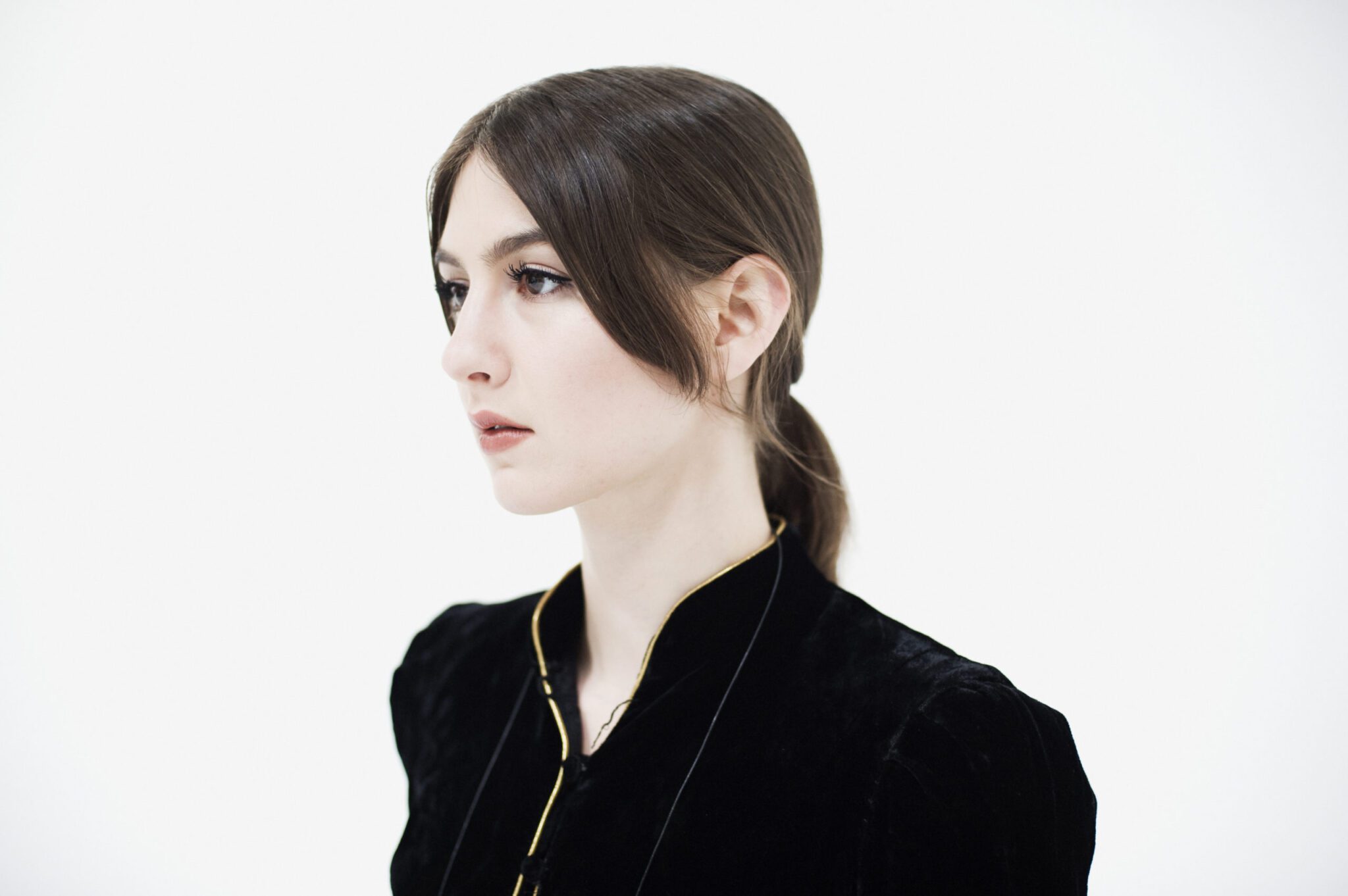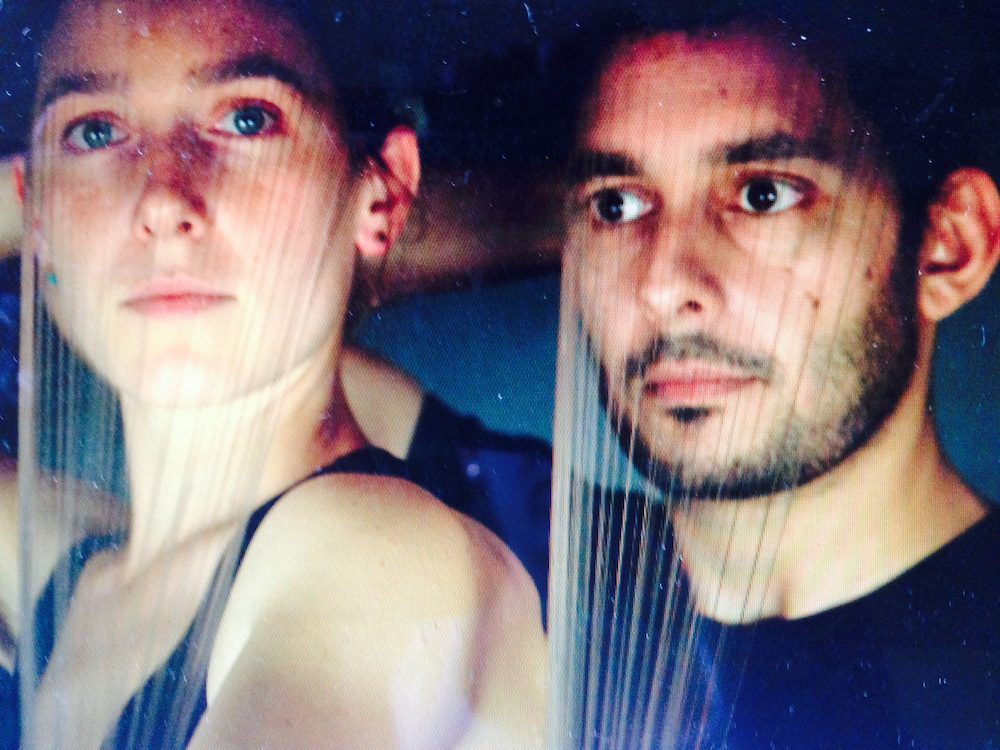INTERVIEW/SHOW PREVIEW: Dinowalrus
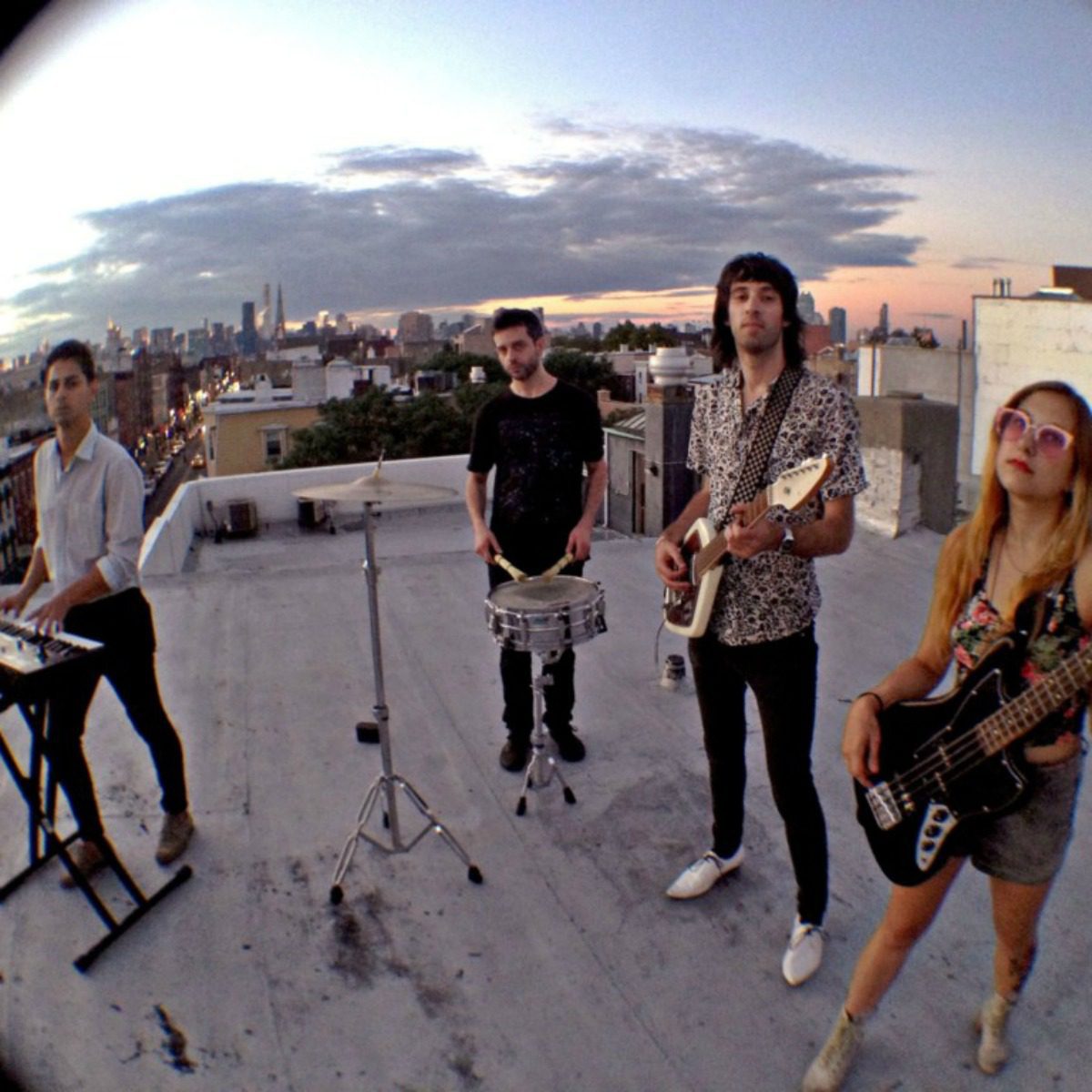
Pete Feigenbaum spoke to me for about an hour about this thing, that goes on in New York City. People play instruments on stage, sometimes for near to no money—but the action of it is rewarding enough. This thing called the music scene, is one that Dinowalrus is very much a part of. Brooklyn is special, because of its wealth of music. You can catch a show—literally anytime, any day of the week. And a whole lot can happen. In Pete’s case, he met on of their newest members, Meaghan Omega, at show they played with Spires. Alongside other members, Dan Peskin and Max Tucker, Dinowalrus released Fairweather, just last month. You can watch them play songs from their fourth installment tomorrow at Alphaville, with Bosco Delrey, Spritzer, and It’s Over. Before you go, check out Audiofemme’s interview with Pete. And if you weren’t going, his answers might help you change your mind.
AudioFemme: I was listening to the new album. I fucking love it! I’m really into the track “Guilty.” That’s one of my favorite tracks on it.
Pete Feigenbaum: Cool! “Guilty” was mostly inspired by this Happy Mondays song called “Wrote For Luck” also known as “WFL” which is at a similar tempo, and also Jagwar Ma. You know them? They’re from Australia. There’s even a little Nine Inch Nails influence in there on the keyboard parts. And the guitar has a Rolling Stones meets Primal Scream thing. A certain chord voicing that Andrew Innes plays on “Movin’ On Up” or Keith Richards plays on “Start Me Up” and “Brown Sugar”–that’s where that song is coming from.
I guess that explains why I love it so much.
Yeah, there are quite a few different influences funneled into it. We don’t play it live yet but we will soon. We tend to write, record, and release songs first and then decide if we want to play them later, like a production team approach to making albums rather than like a band playing in a garage with microphones rigged up. The production team approach is easier and more cost effective for the kind of music we want to make.
You do have a lot of material over the past years. Are you constantly writing? Are you constantly going and going and then deciding on albums or..?
I wouldn’t say we’re super prolific, compared to some bands who say: “We just wrote 30 songs last month and we’re narrowing them down.” Rather than write 30 fully-formed songs, we experiment with a lot of fragments, perhaps a chorus or verse or riff. Then we just sit on it for six months or a year and let it marinate and get a sense for whether it’s going to be good and whether it’s going to fit an aesthetic that we might have for the band at a particular point in time. But over the years, we’ve worked in many different ways. Sometimes we’ll jam in the practice space. Lately, it’s been more focused on production sessions in the practice space or in my apartment studio. So yeah, I’ll have many small ideas, but once I decide to actually double down on the idea, that’s where the real work begins.
Execute it into a song?
Yeah execute, then it’s at the point of no return. I’m not going work to develop a song I’m not going to use. So even though a chorus to a song might only be 20 seconds long, when I’m still in the demo stage, I’ll build up 20 layers, and it will sound exactly like the finished product, but the vocals might be kind of mumble-ey, I’ll be mouthing some syllables instead of singing the final lyrical hook. I don’t generally write whole songs that are fully flushed out and then abandon them or pick and choose between the best. Nonetheless, there are always a lot of pots on the stove, some of which might be half-baked at first.
Now that the pressure is winding down on getting this album out, I’m already thinking about the next album and I’m looking through my archive. I already have 10 or 12 of these granular ideas where I’m thinking “This is probably what the future song would sound like.” And that will be the jumping-off point when it’s time to make the next album. I think I’m also getting a little better about having a concept for the album. Not a concept album in the traditional sense like The Who’s Tommy or Titus Andronicus’ The Monitor (which I play guitar on a little bit), but a stylistic direction.
That’s funny… I interviewed Patrick Stickles, probably like last year.
Oh cool! Nice. I played in Titus in 2009 for a couple of tours between Airing of Grievances and The Monitor. Anyway, I don’t think I’ll ever make a concept album like that, but on future albums, I’ll definitely be trying to hone in on a…
A theme?
Yeah, even this album still has a bit of a grab bag approach, but more and more I’m trying to create a nice flow from song to song where sounds aren’t contradicting themselves stylistically. What do you think? I feel like Fairweather is still somewhat eclectic, but not too much, hopefully.
Actually, the reason I loved it was that it was not all over the place. It was ever-changing but on the same wavelength, I guess you could say. Like you had all these references- like weather, water, geographical nature, and things of that sense – and I felt it in the music itself
It has a pastoral mood for sure, probably subliminally inspired by The Stone Roses. I feel like they have a lot of references to nature in “Waterfall” or “Mersey Paradise” but my use of these themes is mostly a reflection of how I see the world visually. This visual approach translates back to the music in terms of landscapes, so I guess that’s one of the main psychedelic aspects of the album. The album is psychedelic in a lot of ways but there are also moments when it’s not, where it’s very direct or clubby as well. But still I think the vocals and the lyrics keep things on the same wavelength–that’s a good point you made.
Yeah yeah, for sure. There are different things you said, like it being clubby and the different variables here and there but I feel like it really is all you know in one thought, wave, that you’ve made. And that’s what I really love about it, you know.
Yeah, I think some historically great bands have put out some pretty eclectic albums from Exile on Main Street by The Rolling Stones, to In Utero by Nirvana, andScreamadelica by Primal Scream – one of my all-time favorite albums, which has Chicago house moments, garage rock moments, and down-tempo piano ballads. I feel like the best bands always try to be ambitious in mixing things up.
I know you guys have had some lineup changes; right now it’s you, Meaghan on bass, and then you have Max, you have Dan, how did you guys come together?
Let’s see, well, Max and I have been playing together for almost five years now, I guess. We met him through our friends Ava Luna so…
The current lineup consists of four mates, correct?
Yeah yeah, that’s the lineup. To complicate my explanation, on Fairweather, my former bandmate Liam Andrew had a pretty large input, but he moved to Austin for a job just as we finished mixing, so he’s in the liner notes, but no longer part of the live crew. Then at his last show, we met Meaghan. It was at Alphaville–we played with Spires, who no longer exist but they were one of my favorite bands. I like to think Matt Stevenson, who’s one of my good friends, also incorporated Madchester stylings into Spires because he was inspired by some of Dinowalrus’ stuff. Anyway, we were playing with Spires and Meaghan was there to see them. I was talking to her at the bar, and she said something like “I liked your set” and then I said, “Well Liam’s leaving the band in a month if you wanna try out,” and she did and was a great fit. We also had a lot of mutual friends.
That’s awesome.
I always like meeting people organically like that. And then we met Dan online. I leave no stone unturned when finding people to play in the band. On the topic of Titus, Patrick always amazes me, how he’s always able to find new people to play in the band, I don’t know how he does it. I mean obviously, they’re highly successful so that helps, but they also work super hard; they’re always on the road, so it’s not for everyone. But it seems like he’s always able to find good people on very short notice to play in Titus.
You have as well, you got Meaghan in two months.
Oh yeah, well, it wasn’t quite that simple–we couldn’t play shows for two or three months while getting up to speed. And Liam was talented and so versatile. He could play synthesizers and bass guitar at the same time–which was kind of mind-blowing to watch–by playing open strings on the bass and using his left hand to play a chord on the synth.
Wow.
I essentially replaced him with two people because I didn’t want someone to be stressed out by multitasking. I wanted the band to be more about having an extroverted on-stage vibe and persona rather than incredible displays of acrobatic musicianship. Before Liam left the band, even, we were mostly playing as a four-piece with my friend Tyler McCauley, from Soft Lit, on bass. So with that experience, I thought it’d be best to officially become a four-piece. It makes going on the road a little tougher–like, we have a couple shows in New Haven and Providence, and I’m still unsure how we’re going get there—but…
Uber!
We’ll rent a van or take two cars. But money’s always tight, so we have to be strategic about it. But back in the old days, with only three people it was great because we could cram into pretty low-end rental car… With all our gear. We would have to borrow a drum kit but we could basically cram all the gear, the band and kind of clown-car drive up to wherever the show might be. But anyway, yeah, a four-piece is nice. Everybody has a little less responsibility so they can focus more on having fun and rocking out.
Yeah, having a good show!
Exactly, Meaghan also does a lot of backing vocals and has been really great. The album was basically done right around the time she joined the band, and then in the process of learning the songs she added some great vocal ideas here and there We decided to “unfinalize” the album and record her vocals on it. So, we went into the practice space and cranked it out over a couple hours; it was easier than I thought.
That sounds sick. Well okay, so it’s going be tough for you to go to like Rhode Island ‘cause I was going to ask… you know, you’re released in Japan. I was wondering if you wanted to you know go over there and check it out– play a few shows.
That would be awesome! I hope that happens. We’ll see how the release does there. I know Ringo Deathstarr has done well out there so it’s not out of the question. I’m sure we could go there at any point, it’s just that it would be much better if we could go there, not have to spend our own money, and have a scenario where the shows and festivals cover all the costs. Otherwise, all these things can end up being a huge money pit. Luckily, I’ve been to Japan already and it was awesome. Not to play but just as a tourist/student. That’s my general feeling about touring. I love to do it when it makes sense financially. Still, I’m sure it would be a lot of fun even if we lost money on the tour. I know Japanese psychedelic rock fans are very enthusiastic.
I do have half-Japanese siblings that spend half the year there and you would have a blast playing there. I feel like you know you’ll have really great reception and the crowd would really love you.
I’m sure it would be great but all these things are expensive so… if the label could hook us up with a festival that would pay for everything, I’d do it in a heartbeat. Luckily, as I’ve been getting further along I’m less anxious about borrowing gear. For some reason when I started the band, even though our sound was rough, there were a lot of synthesizer arpeggiators, voice manipulation effects, and samples. We still have all that stuff but now the success of the live set doesn’t depend on the technical stuff as much. In the future I want the synthesizers to mimic guitars a little more, where they’re gritty and thick rather than airy or bleep-ey.
That sounds like you had…
I was a big fan of that Justice album, Cross, from eight years ago.
Oh, yes. Me too.
It uses plenty of hard sounding synths. Mixing that with guitars might be a cool thing to do moving forward. Staying somewhat electronic, but more hard-nosed.
Oh man, that album is great! It sounds like you know your next album, what you want your “concept” to be. Hah. Something a little harder…
I”m picturing something like biker-rock/shoegaze. The shoegaze-y aspect would probably come out in the vocal melodies. Like the heavier side of Spacemen 3, or Loop. Like the first Spacemen 3 album where there are plenty of power chords with a big muff pedal–that kind of approach, but a little more electronic. It’d probably be more song-oriented than Spacemen 3, as well. I feel like that might be a good progression. This album might be the end of a body of work that started on the second album where we were really going for the Madchester sound – where it’s groove-heavy, with a lot of synths, organs, and a bunch of Chicago house beats and the guitar is a little more atmospheric. This future shift also has something to do with the sounds of the scene we’re in currently. On our second or third album we pushed ourselves towards pop, thinking it might yield good career results and help us get to the next level, but it didn’t really pan out. It was a delusion of grandeur. The songs were good, but in terms of career momentum, it didn’t really accomplish anything. So, now I think we might as well just double down on what’s going on directly around us and try to tap into some of the niche fanbases that are centered around psych, garage rock, and shoegaze. If you identify yourself as a band in one of those genres, there’s probably a lot more solidarity and niche interest in your band, even if it means you sacrifice the possibility of massive mainstream success. But solidarity and a sustainable fan base seems better, at this point. If you try to do something more pop-oriented you can get caught in the middle, where the pop side of the world doesn’t catch on because what you’re doing might not be 110% in line with the flavor of the month, and the more underground-oriented fans don’t really care because they think your album is too fluffy and saccharine for their taste. So we definitely wanna tap into something a little edgier moving forward. My biker-rock/shoegaze idea might not be the most right kind of edgy, but I don’t really care.
No, you shouldn’t care. You’re an artist. If that’s what you feel like doing, that’s what you feel like doing.
Yeah, no doubt! However, I think there are a lot of garage rock bands around now, and I don’t necessarily want to go down that road either. I still want Dinowalrus to be muscular, groove-oriented, and mid-tempo. So, almost “hard rock”. Whatever hard rock will mean in 2017, you know? Outside the band, I really like 80s metal, like Judas Priest and Saxon. And even some “indie-approved” bands like The Jesus and Mary Chain went off in that direction, like on their third album, Automatic. I think it would be fun to tap into that sound.
Hell yeah.
I’m just kind of rambling here but…
No, I love it! I love your honesty, and the creativity is just flowing. It’s really inspiring.
Well, thanks! I think that’s what the band is all about. That’s what keeps it moving forward. It’s a vehicle to be creative and engage with songs and music around us that I’ve liked or been inspired by. Because other than that, the industry aspect is very difficult and usually bands like us don’t exist beyond an album or two, once the going gets tough.
Well you’re on [fusion_builder_container hundred_percent=”yes” overflow=”visible”][fusion_builder_row][fusion_builder_column type=”1_1″ background_position=”left top” background_color=”” border_size=”” border_color=”” border_style=”solid” spacing=”yes” background_image=”” background_repeat=”no-repeat” padding=”” margin_top=”0px” margin_bottom=”0px” class=”” id=”” animation_type=”” animation_speed=”0.3″ animation_direction=”left” hide_on_mobile=”no” center_content=”no” min_height=”none”][album] four!
Well, it’s only because of our creative drive and energy. Because there’s certainly no money. There’s not much fame. There are very few perks in general and many pitfalls. In contrast to the strung-out rock stars of yore, you have to be really organized, self-reliant, and on-the-ball to keep things together as a band these days. I view it as an exercise of persistence, really. Luckily, we always have small but exciting victories here and there, like connecting with our Japanese label, Moorworks. I’m hopeful that might open up some possibilities.
Yeah, more work. They had some other awesome bands too.
Yeah, they have a great roster! Maybe we could team up with one of their bigger bands, like Of Montreal, to hit the road at some point.
And then you’ll be on tour. Just have fun, meet people, and all that jazz.
Yeah, exactly! That’s the way to go. We want to open for bigger bands, but it’s tough. I don’t understand booking agents and what motivates them. I assume they’re barely making any money so they have a tough, tough gig. But they still have a large role in helping bands get their careers off the ground. Occasionally we get a bone thrown our way. Unfortunately, there are a million bands and there are a million reasons why your band is not a good fit for a show or a tour. Again, that’s why we are mainly content to play shows with our friends and have a good time. It’s almost like a stamp collecting club or something where we all just hang out and show each other what we are working on and if a few extra folks stop in to check it out, all the better! That’s pretty much where it’s at. Having fun and hanging out with our friends, and having a creative outlet. It’s kind of amazing how much that still motivates me!
[/fusion_builder_column][/fusion_builder_row][/fusion_builder_container]

